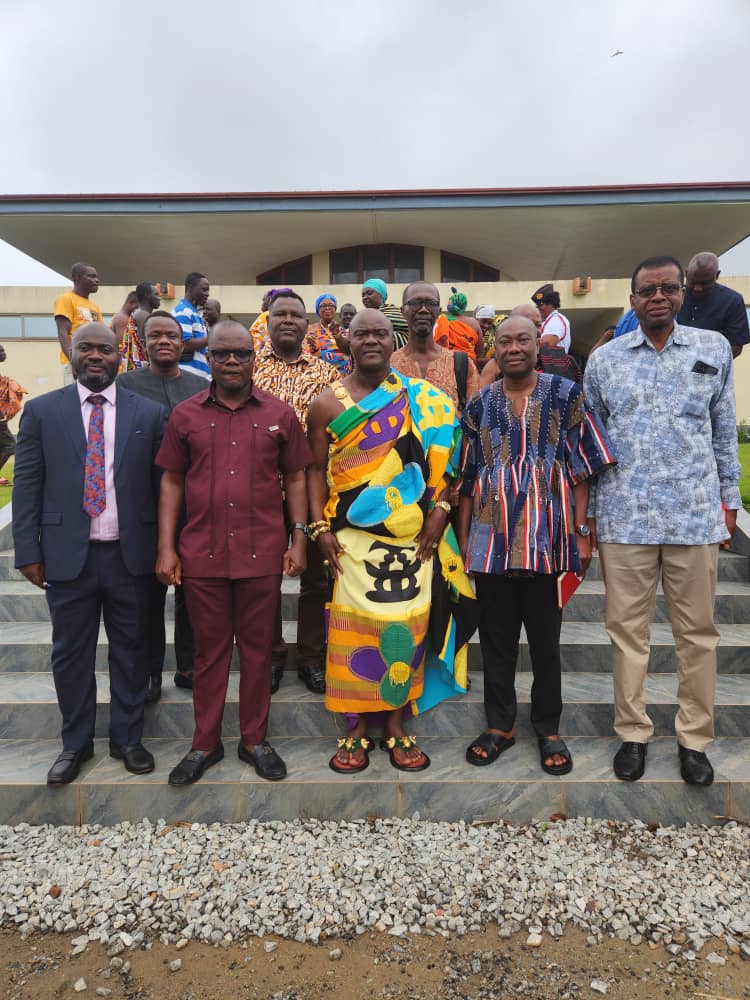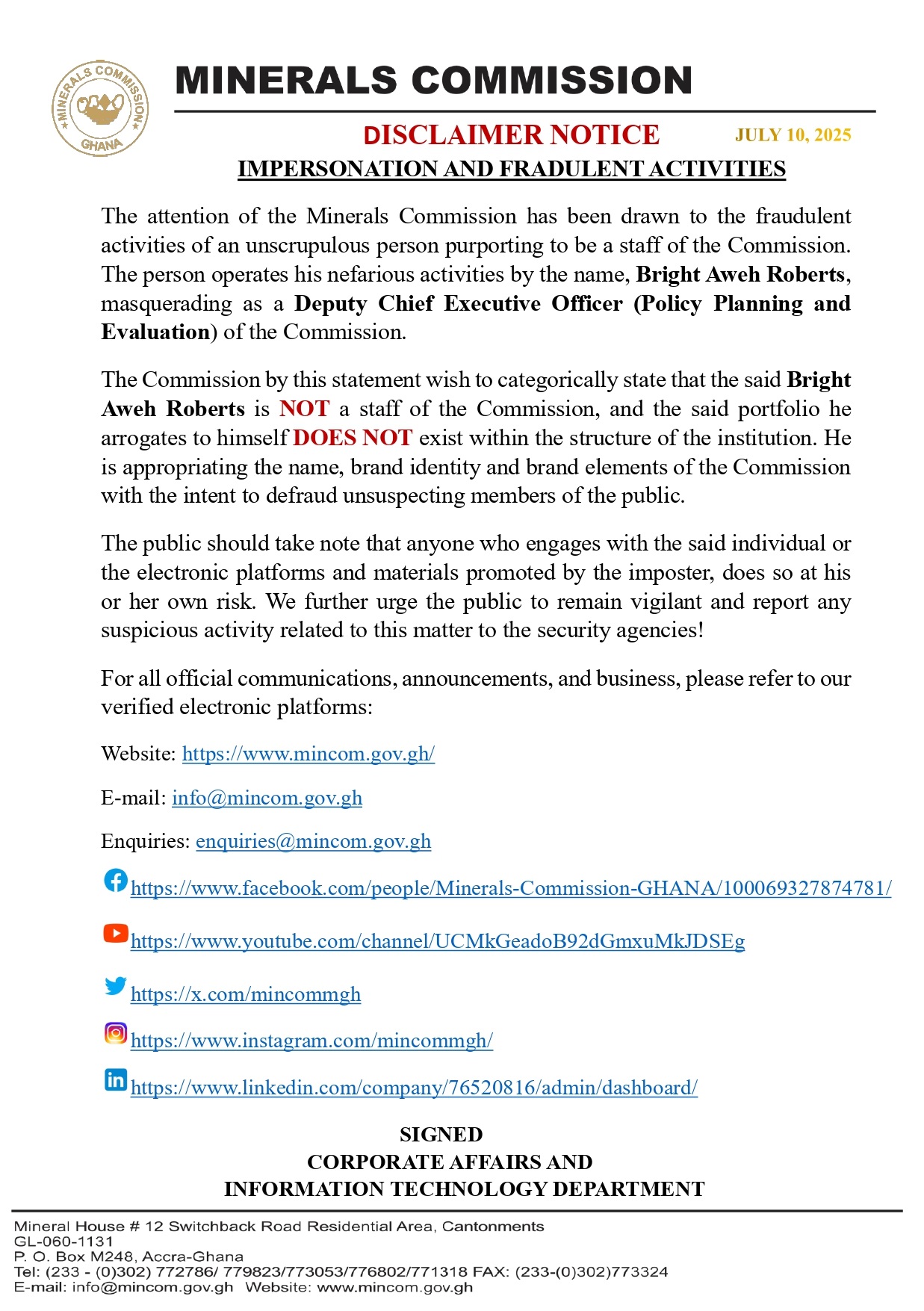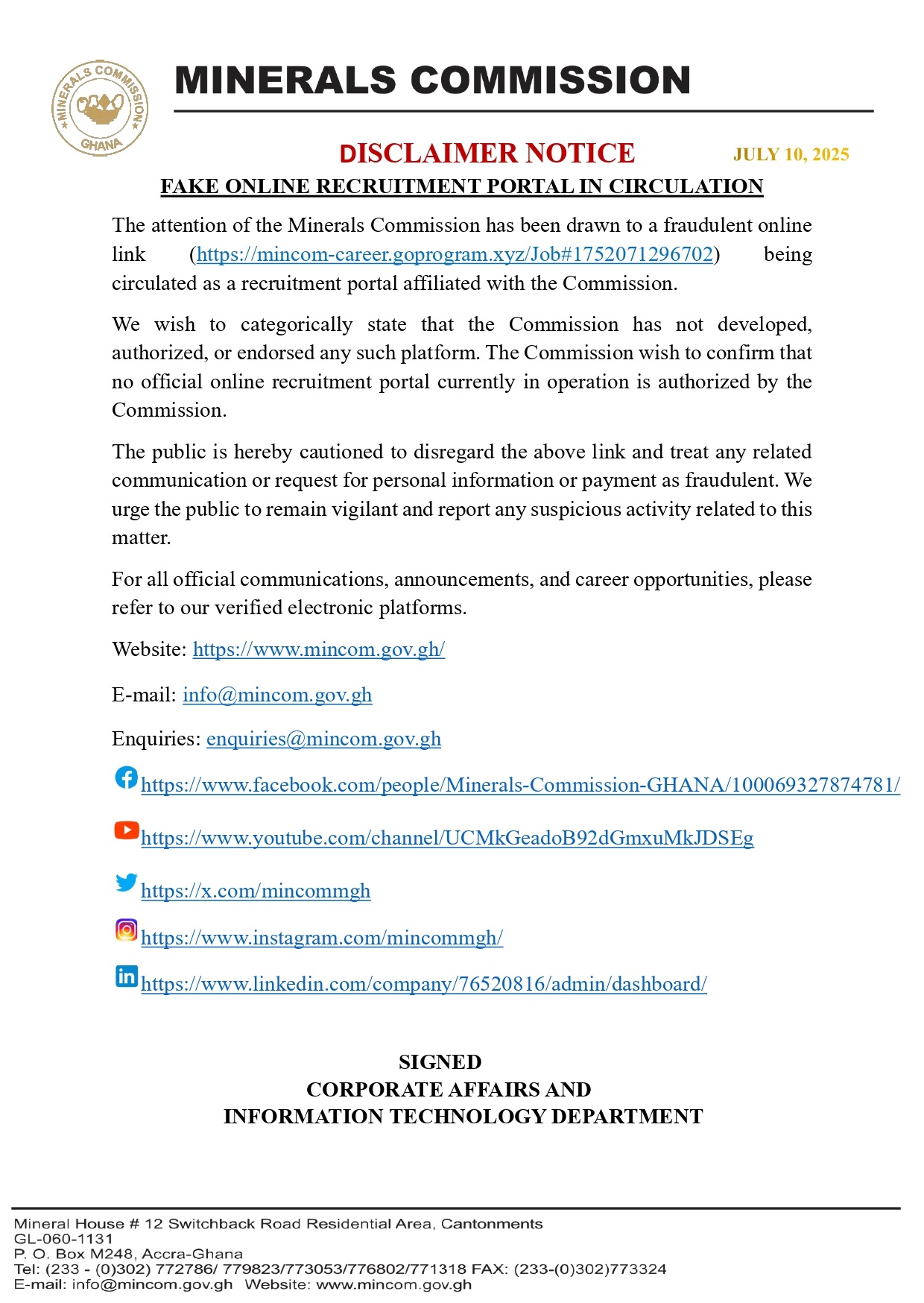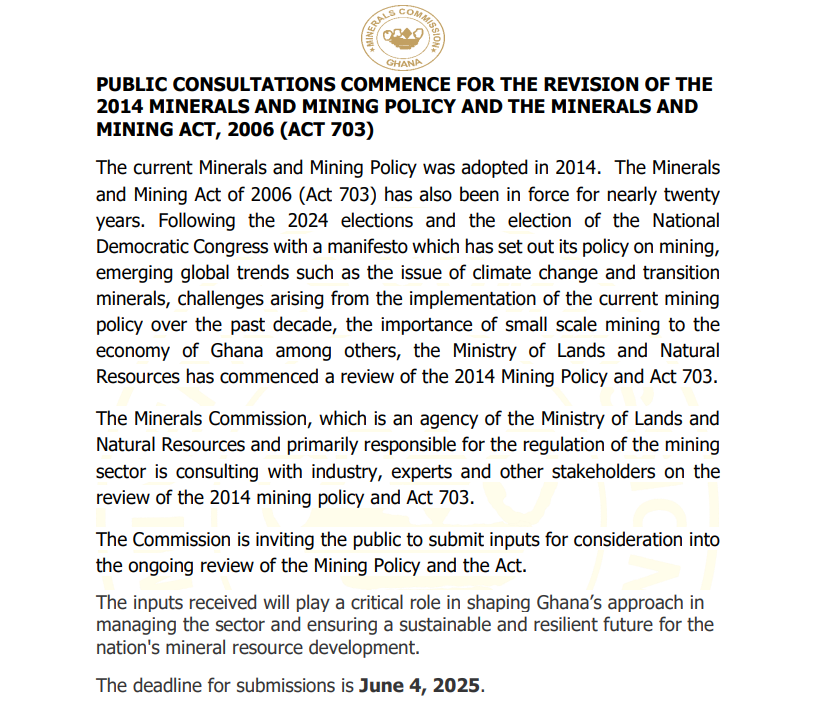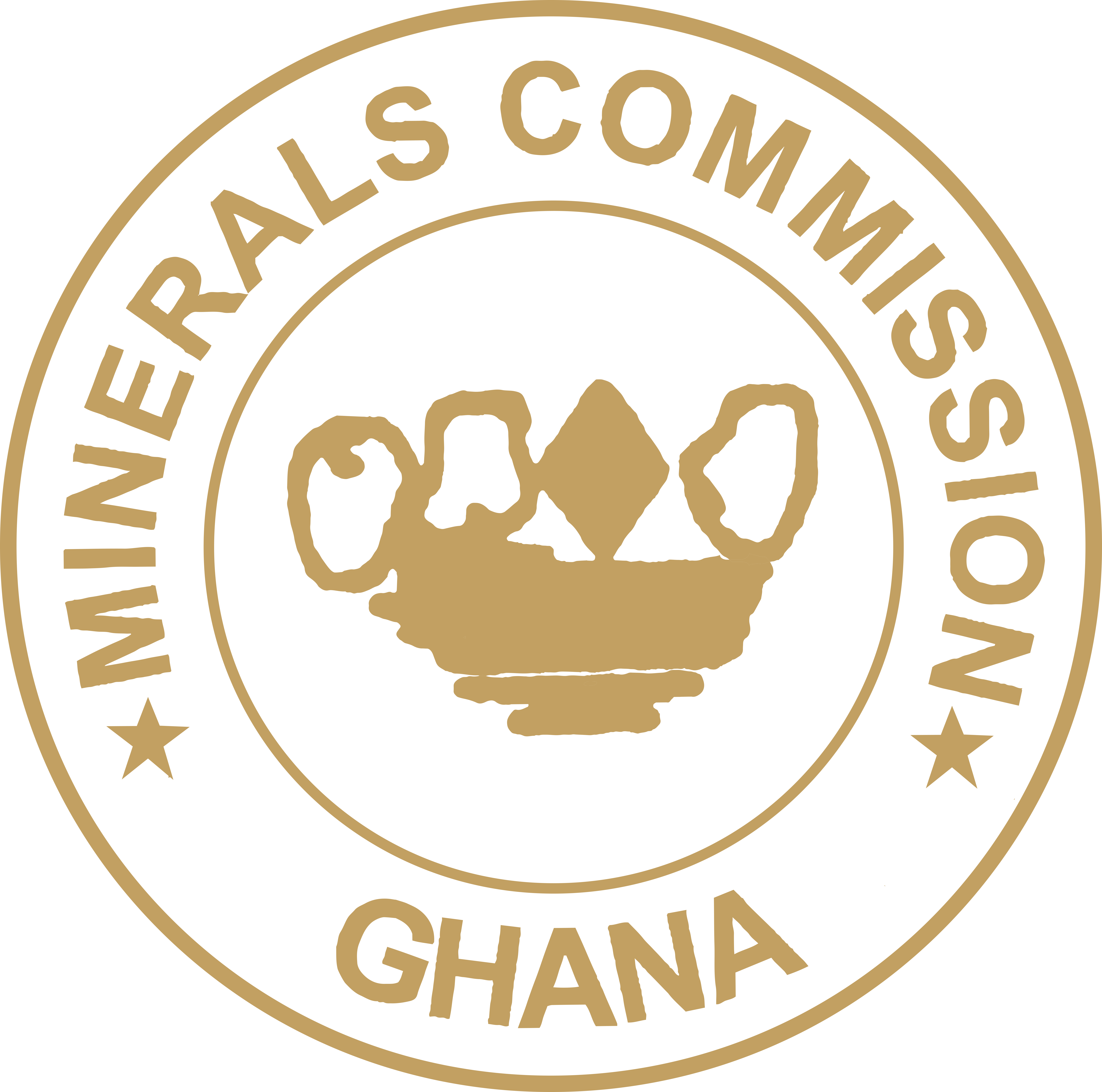Strengthening Partnership: Upper East Regional House of Chiefs meets Minerals Commission on Legal Reforms
Strengthening Partnership: Upper East Regional House of Chiefs meets Minerals Commission on Legal Reforms
Bolgatanga, Upper East Region, July 16, 2025 – In a significant step towards reshaping Ghana’s mining landscape, the Minerals Commission engaged the Upper East Regional House of Chiefs in Bolgatanga. The high-level consultative meeting focused on crucial proposed amendments to the Minerals and Mining Act, 2006 (Act 703) and the 2014 Mining Policy.
Chaired by Chiana Pio Ditundini Adiali Ayagtam III, Paramount Chief of Chiana Traditional Area and President of the Upper East Regional House of Chiefs, the dialogue underscored the vital role of traditional authorities. He amplified the eminent role of Chiefs, stating “our sacred duty as traditional leaders demands stewardship and recognition when it comes to land acquisition”. The Chiana Pio highlighted the region’s rich mineral endowment, which include manganese, iron and gold. He welcomed the government’s efforts, including the establishment of the Gold Board to regulate the purchasing and sale of gold in the country. He raised strong concerns about environmental threats and dangers of unregulated small-scale mining to both the environment and lives of community members. He further advocated for a more transparent land allocation process and expressed unease about mineral rights notices served on communities unaware of the full scope of activities. The Chiana Pio stressed the need for active support by the Chiefs to sanitize the mining sector, promote environmental stewardship, and improve governance. On behalf of the Regional House of Chiefs, he pledged total commitment to supporting the government’s reset of the mining sector.
Prof. Jerry Samuel Yaw Kuma represented Hon. Emmanuel Armah-Kofi Buah, Minister for Lands and Natural Resources at the function. Delivering the keynote address, he intimated the urgent need for the review of the mining laws, policies and accompanying regulations after two decades of implementation considering the revolution and innovations happening in the mining sector across the globe. He emphasized Ghana’s mineral wealth (gold, manganese, bauxite, lithium, iron etc) acknowledging that Ghana is now the leading producer of gold in Africa.
Prof. Kuma spotlighted the government’s initiative to establish Cooperative Mining – a shift from Community Mining to a structured and integrated community led mining to boost local participation and direct economic benefits to Ghanaians. He remarked that the government is conscious of environmental degradation posed by illegal mining and committed to sustainability, with enhanced regulations to protect water bodies and promote responsible mining practices.
Prof. Kuma noted, Chiefs are key partners, recognizing their constitutional mandate and institutional knowledge as traditional leaders in land stewardship and licensing. Also, he stated that several stakeholder consultations had been held with the Chamber of Mines, National Development Planning Commission, Small-Scale Miners Association, and the Parliamentary Select Committee on Lands and Natural Resources among others. Mr. Benjamin Aryee, Chairman of the Mining Policy Review Committee and former Minerals Commission CEO, outlined critical interventions and proposals including phasing out mercury use in small-scale mining, referencing the Minamata Convention, which Ghana is a signatory, and alternatives like Gold Katcha, a mercury free mining equipment which enhances gold recovery rate by about 90%. He also mentioned the need to decentralize the operations of the Commission
through the establishment of regional and district offices and streamlining the licensing process. Mr. Aryee noted the benefits of local content and local participation in deepening Ghanaian ownership through share acquisition and listing of mining companies on the Ghana Stock Exchange. Again, he emphasized the adoption of Environmental, Social, and Governance (ESG) standards, climate change mitigation, and occupational health and safety into the new policy.
Mr. Josef Iroko, Manager, Legal of the Commission, detailed specific proposed amendments:
- Parliamentary Ratification: mining leases require parliamentary approval within 60 days.
- Transparency Boost: strengthening Extractive Industries Transparency Initiative (EITI) compliance and Rights to Information access.
- Stricter Community Pacts: mandatory 1% gross revenue for Community Development Agreements (CDAs) to be negotiated and signed off within 6 months, backed by Development Committees and sanctions for non-compliance.
- Reclamation Security: compulsory posting of reclamation bonds to tackle environmental degradation and pollution.
- Review of Stability and Development Agreements: reducing Stability Agreement durations from 15 years max to 5 years, abolishing Development Agreements.
- Gender & Inclusion: mainstreaming gender and addressing needs of Persons with Disabilities (PWD).
The Chiefs actively engaged in the discussions and proposed recommendations for the attention of Review Committee. Below is a summary of the concerns raised:
- Royalty Distribution: Direct consultation with Regional Houses of Chiefs on royalty disbursement, including a percentage allocation to them. They also suggested channeling royalties into tangible CSR projects like schools, hospitals etc.
- Enforcement & Impact: Demand enforcement of reclamation, addressing externalities (e.g., river pollution, forest destruction), and requiring mining companies to deliver significant community projects within 3 years of signing CDAs.
- Local Jobs & Inclusion: Mandatory allocation of at least 20% non-technical jobs for local communities and include Queen mothers in mining decision-making.
- Combating Illegality in Mining: Government to implement sustainable measures against illegal mining, stop mercury use in small-scale operations, prohibit child labour, and clamping down on “fronting” for foreigners in small-scale mining reserved for Ghanaians.
- Formalizing Chief’s Role: Amend the law to explicitly include “Stool or Skin” in narratives and introduce a mandatory Chief’s consent form prior to granting mineral rights.
Concluding the session, Prof. Kuma called on the Chiefs to formally submit detailed feedback within two weeks. He emphasized that Ghana’s ambition to be a leader in responsible mineral resource management hinges on these collaborative reforms, designed to maximize the sector’s contribution to national development.
This meeting marks a crucial step in aligning Ghana’s mining regulations with contemporary challenges, environmental imperatives, and the rightful role of its traditional custodians. The outcome of this review process promises a more sustainable, equitable, and prosperous future for Ghana’s mining sector and its communities.
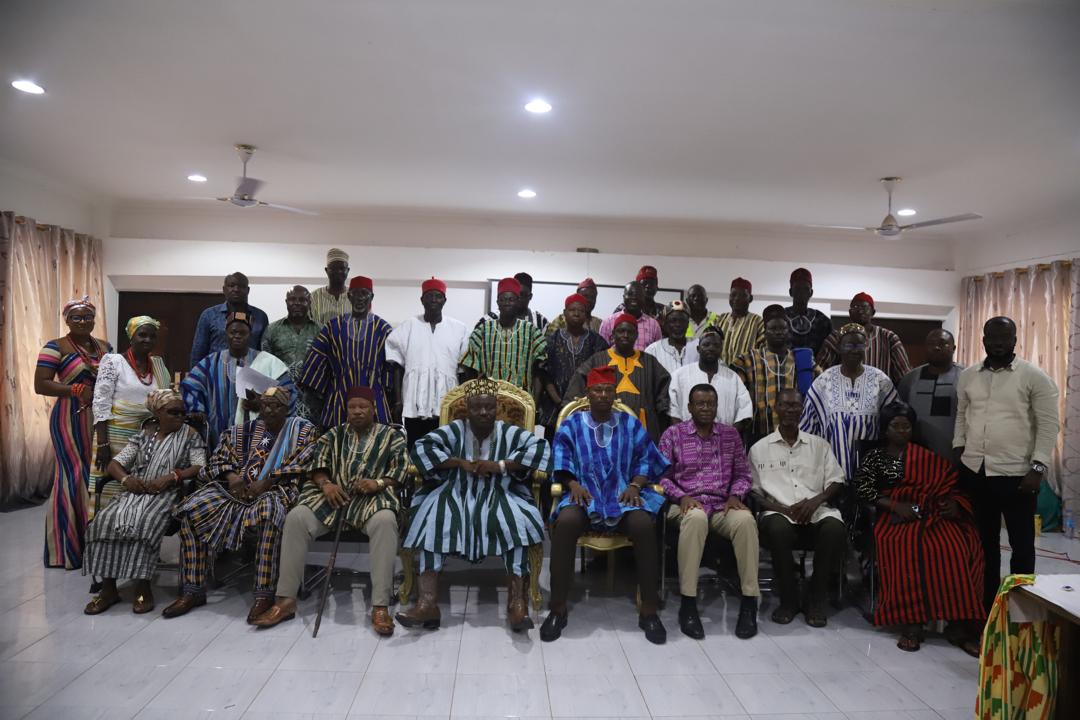
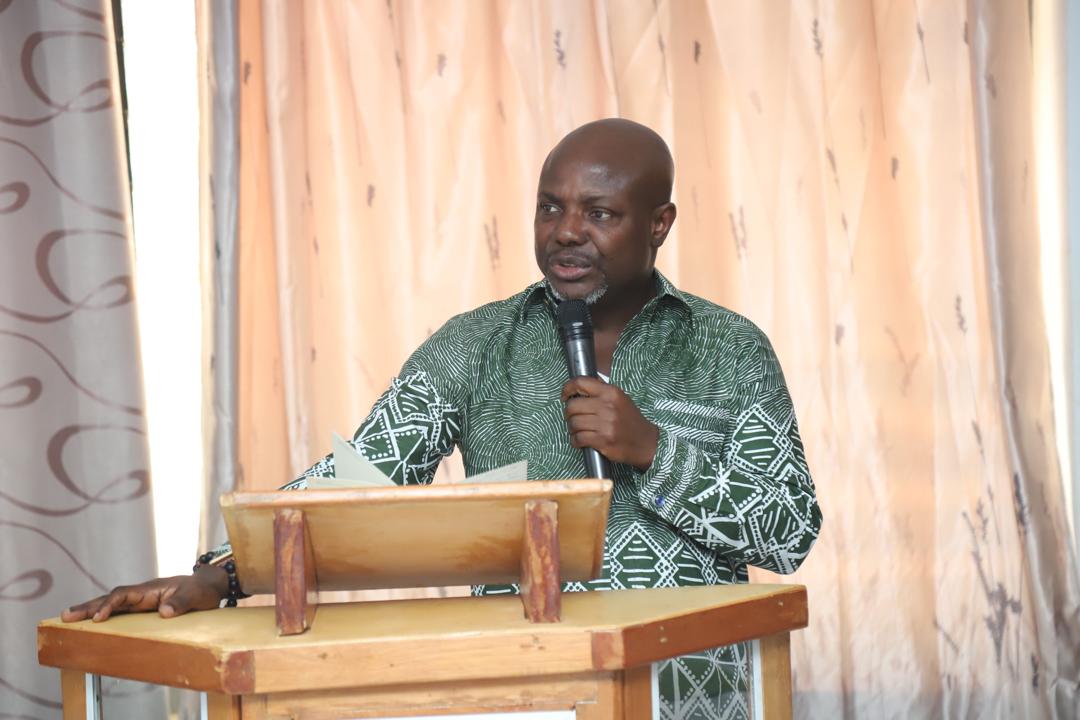
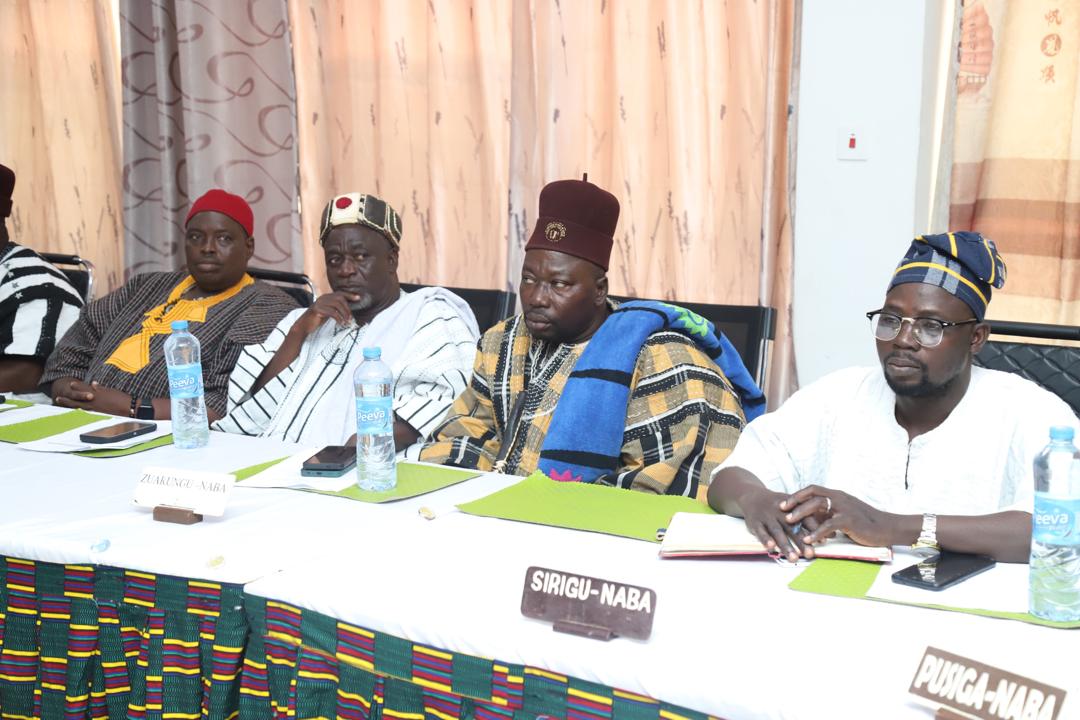
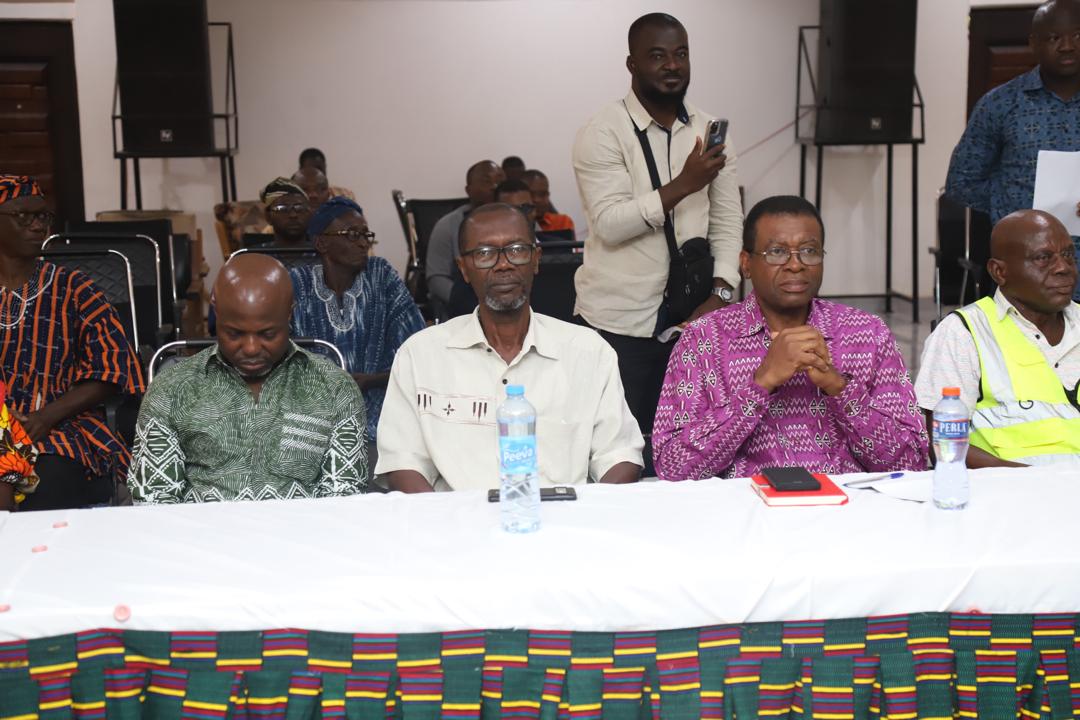
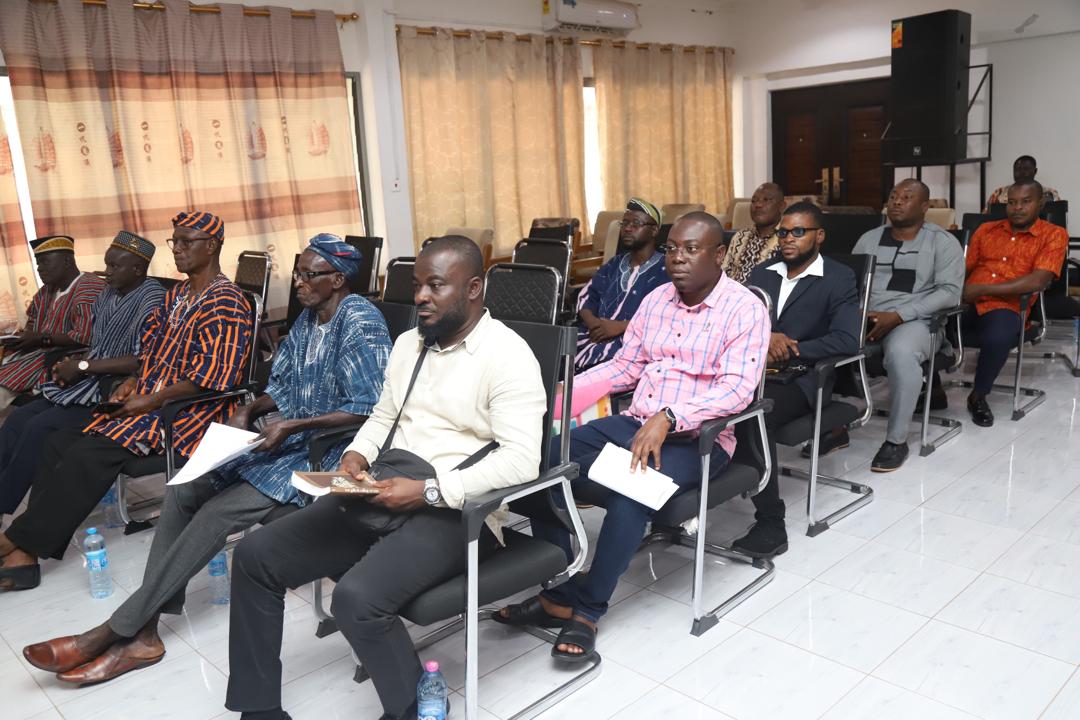
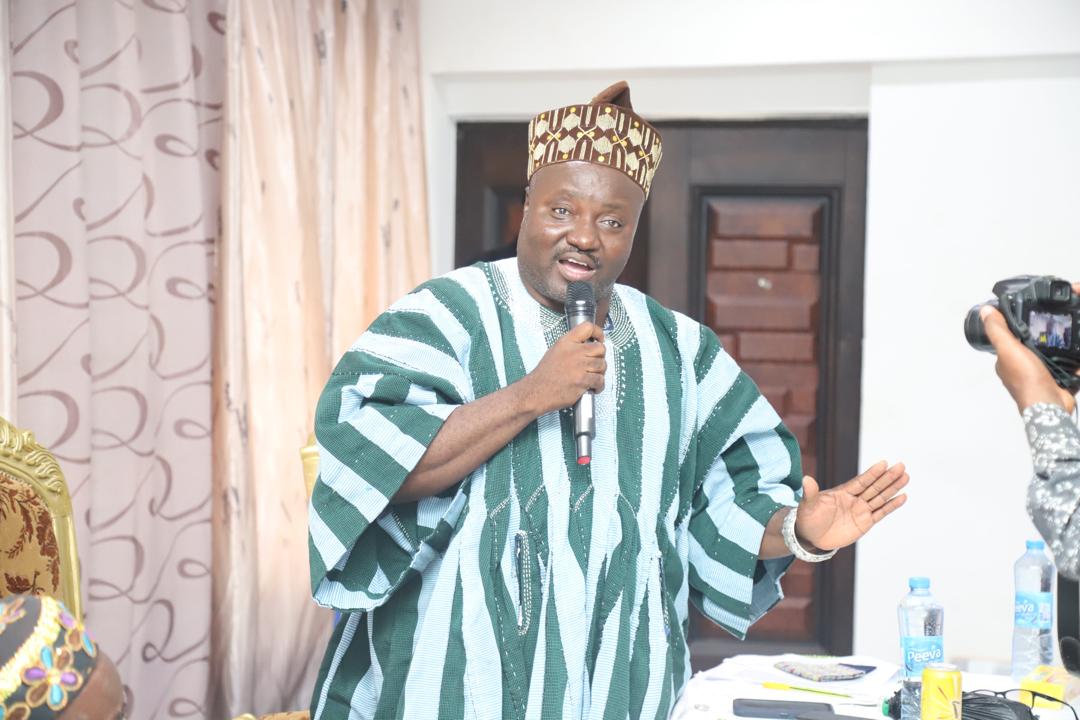
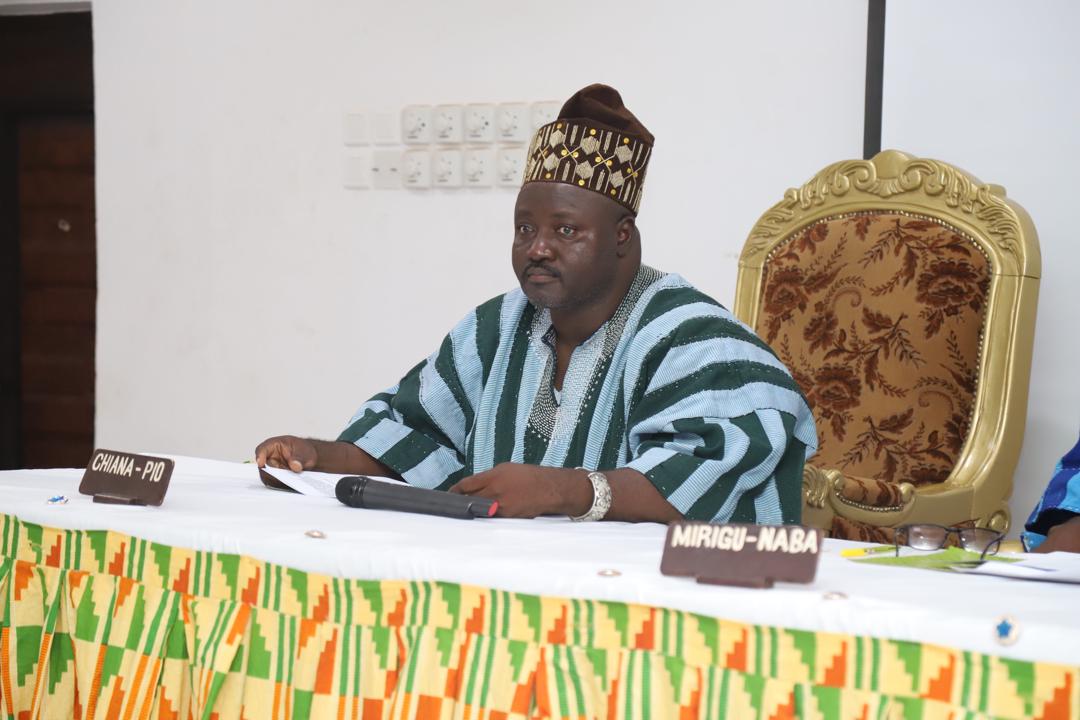
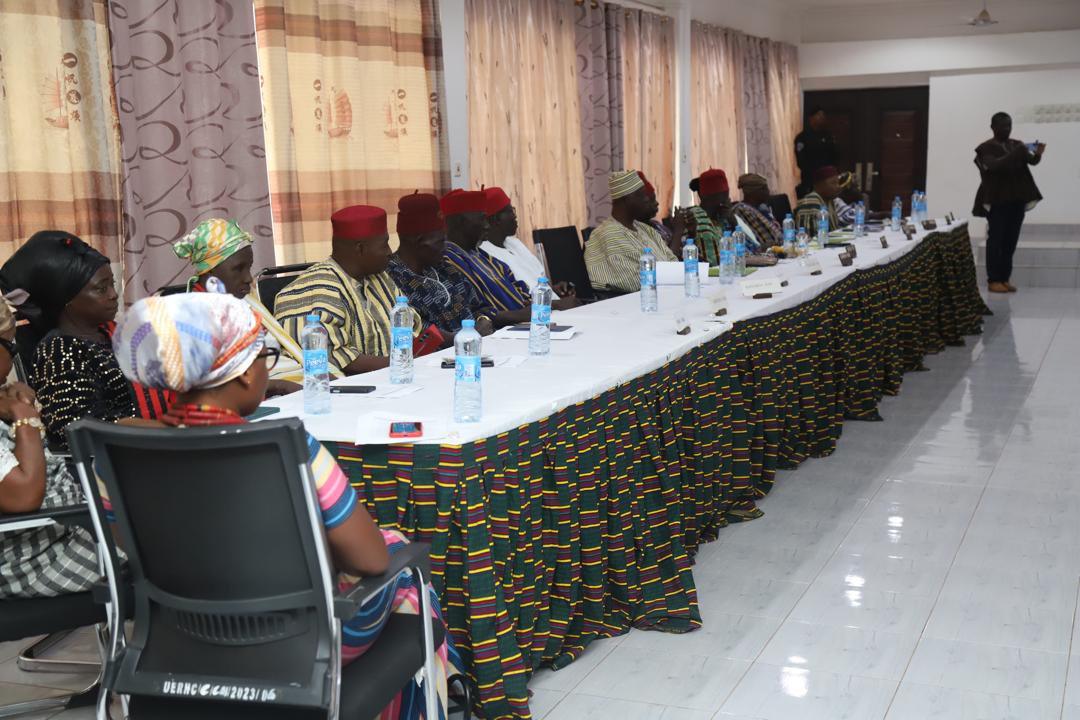
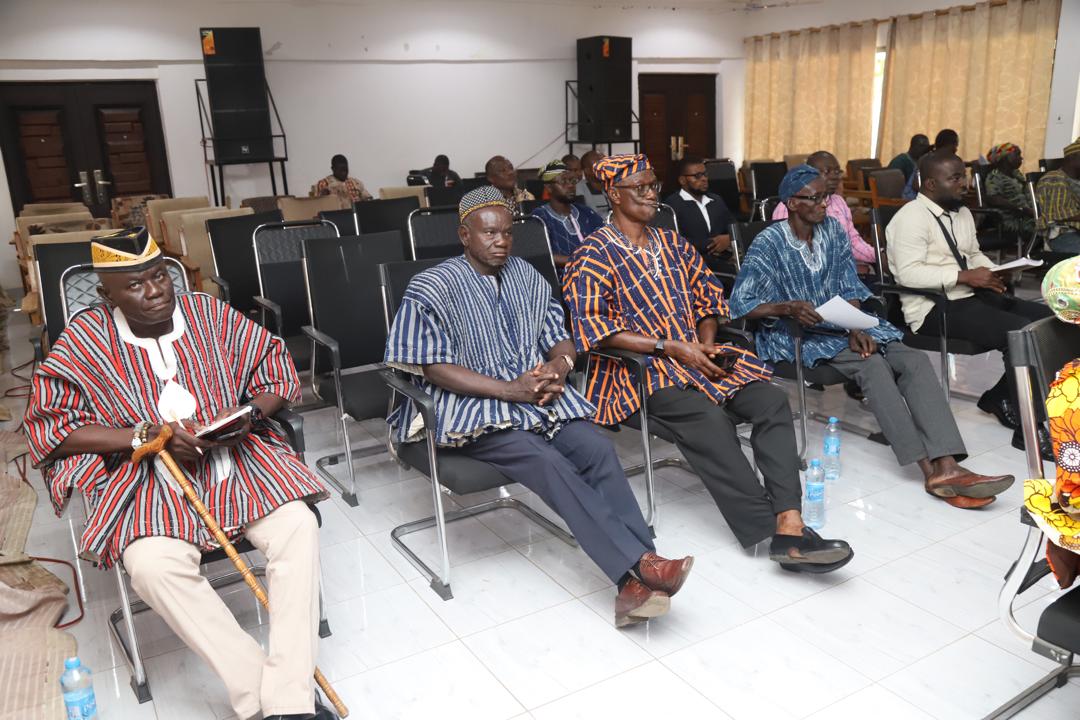
Minerals Commission meets Savannah Regional House of Chiefs on Amendments to Minerals and Mining Law and Policy Reforms
Minerals Commission meets Savannah Regional House of Chiefs on Amendments to Minerals and Mining Law and Policy Reforms
On Monday, July 14, 2025, the Minerals Commission convened a consultative meeting with the Savannah Regional House of Chiefs to discuss proposed amendments to the Minerals and Mining Act, 2006 (Act 703) and the Mining Policy of 2014. The meeting, held at the Regional Coordinating Council in Damongo, was chaired by Kpembewura Banbagne Ndefoso IV, Vice President of the Savannah Regional House of Chiefs. During the event, Kpembewura Banbagne Ndefoso IV delivered a speech on behalf of Yagbonwura Bii-Kunuto Jewu Soale I, President of the Savannah Regional House of Chiefs and Paramount Chief of the Gonja Kingdom.
Kpembewura Banbagne Ndefoso IV, warmly welcomed the delegation from the Minerals Commission and the Ministry. He expressed gratitude to the Chiefs for their participation in the meeting and their willingness to engage in the policy review process. He emphasized the importance of ensuring equity and fairness in the licensing process, highlighting the critical role that Chiefs play in allocating land for mining activities. He advocated for a more transparent approach and called for further enhancements to the process. The Kpembewura reaffirmed the commitment of the Chiefs to support the government’s efforts to reset the mining sector. He praised the Minister’s initiative and emphasized the need for active support to achieve the reset mandate, which aims to sanitize the mining sector, promote environmental stewardship, and improve governance.
The Savannah Regional Minister, Hon. Salisu Be-Awuribe, emphasized the significance of traditional lands and the region’s rich mineral resources, stating, “It is a reality that all lands belong to the Chiefs, and our region is blessed with numerous minerals, including gold.” He expressed concern about the practice of serving notices to traditional communities who may not be fully aware of the extent of mineral rights holders’ activities. Hon. Be-Awuribe encouraged the Chiefs to remain engaged stakeholders and actively participate in discussions to ensure that the region derives full benefits from its mineral resources.
Prof. Jerry Samuel Yaw Kuma, Advisor to the Minister for Lands and Natural Resources, Hon. Emmanuel Armah-Kofi Buah, delivered a keynote address underscoring the importance of Ghana’s ongoing review of its mining regulatory framework. In his remarks, Prof. Kuma emphasized that the policy review demonstrates the government’s dedication to modernizing the country’s mining legislation in response to evolving industry challenges and opportunities. “This comprehensive reevaluation of the law and regulations is to ensure relevance, inclusivity, and responsiveness to both global best practices and local socioeconomic needs” he stressed. Prof. Kuma further elaborated on the government’s progressive initiative to reform Community Mining into a Cooperative Mining framework, explaining that this transformative approach introduces a structured cooperative model, integrated with mini-refineries, to enhance local community participation and ensure direct economic benefits from mining operations. Additionally, the Minister’s Advisor reinforced the government’s unwavering commitment to environmental sustainability, detailing enhanced regulatory measures to protect water bodies from pollution and promote responsible mining practices. He further highlighted the indispensable role of traditional leaders in the mining licensing process, acknowledging their constitutional mandate and institutional knowledge in land stewardship and resource governance.
Mr. Benjamin Aryee, former CEO of the Minerals Commission and Chair of the Review Committee, participated in the function to discuss the proposed amendments and reforms in the mining sector. He highlighted the government’s initiative to decentralize the Commission’s operations by establishing regional and district offices across the country, aimed at streamlining the licensing process and enhance local participation. Mr. Aryee outlined key government interventions, such as deepening Local Content and Participation by enhancing Ghanaian ownership in mining projects through share acquisition and listings on the Ghana Stock Exchange. He also provided an overview of the 12 chapters of the policy, emphasizing areas that require attention, such as effective consultation with mining communities and adherence to global best practices. Mr. Aryee highlighted global trends and local concerns and stated incorporating Environmental, Social, and Governance (ESG) compliance, climate change mitigation, and improved health and safety standards in the new policy.
Mr. Josef Iroko, Manager, Legal at the Commission, gave a comprehensive overview of the current legal framework and proposed amendments to the Law. He emphasized the Commission’s role in reviewing and recommending mineral right applications for approval or rejection by the Minister, who holds the authority to grant mining leases or licenses. Mr. Iroko highlighted the critical functions of Chiefs in the administration and processing of mining licenses, underscoring their importance in the regulatory framework. He also discussed several key aspects of the revised law, including; gender mainstreaming, rights and needs of Persons With Disabilities (PWDs), strengthening the Extractive Industries Transparency Initiative (EITI) to promote transparency and accountability, and securing parliamentary ratification of mining leases within 60 days of grant. He further outlined proposed changes to existing agreements, which include the introduction of a compulsory 1% gross revenue of mining companies as Community Development Agreement (CDA) to promote community growth. Mr. Iroko pointed out the need to reduce Stability Agreement duration from 15 years to 5 years maximum and abolishing Development Agreements due to their limited benefits to the country.
Following extensive discussions, the chiefs expressed concerns and proposed the following recommendations for the Review Committee’s consideration:
- Ownership of Immoveable Properties: Upon completion of the mining cycle, all immovable properties on the land should revert to the landowners rather than the government.
- Addressing Illegal Mining: Effective measures should be implemented to tackle the issue of illegal mining.
- Inclusion of Stool or Skin: The law should be amended to include “Stool or Skin” in its narrative, recognizing traditional authorities role in land ownership.
- Consent Requirement: A consent form should be introduced, requiring Chiefs to sign off prior to the granting of mineral rights, ensuring their involvement and approval in the process.
Prof. Kuma called on the House of Chiefs to thoroughly review the proposed amendments and submit their feedback within a two-week timeframe for consideration by the Review Committee. He emphasized that Ghana’s aspiration to be a leader in responsible mineral resource management hinges on the successful implementation of these reforms, which are expected to substantially boost the sector’s contribution to national development.
-End-
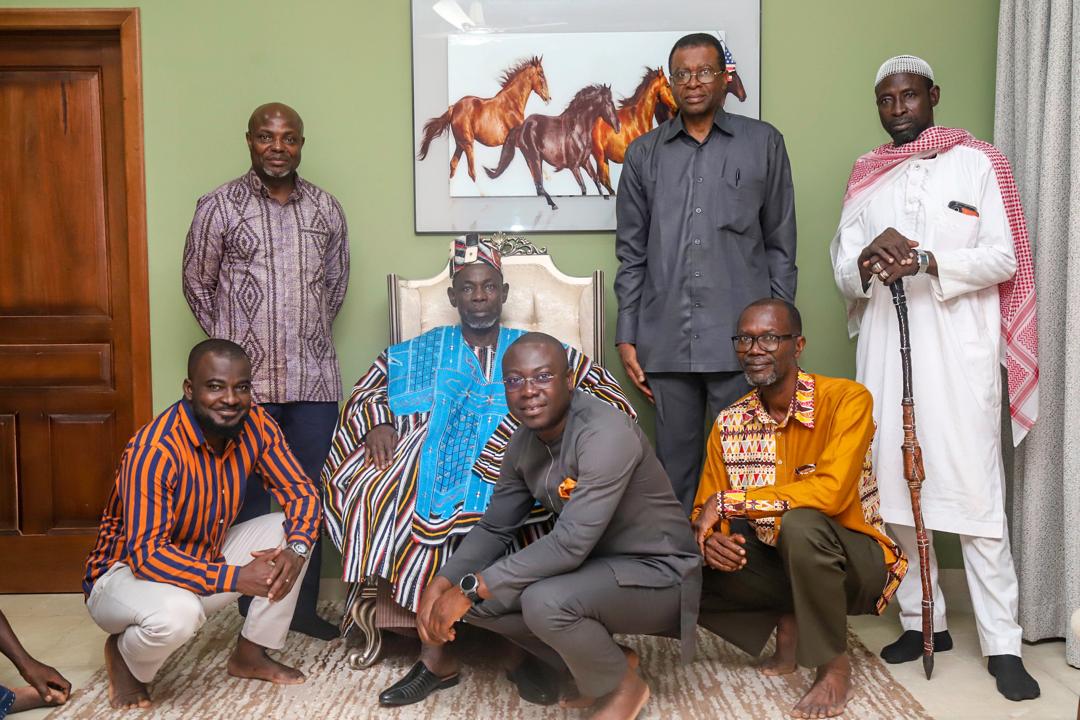
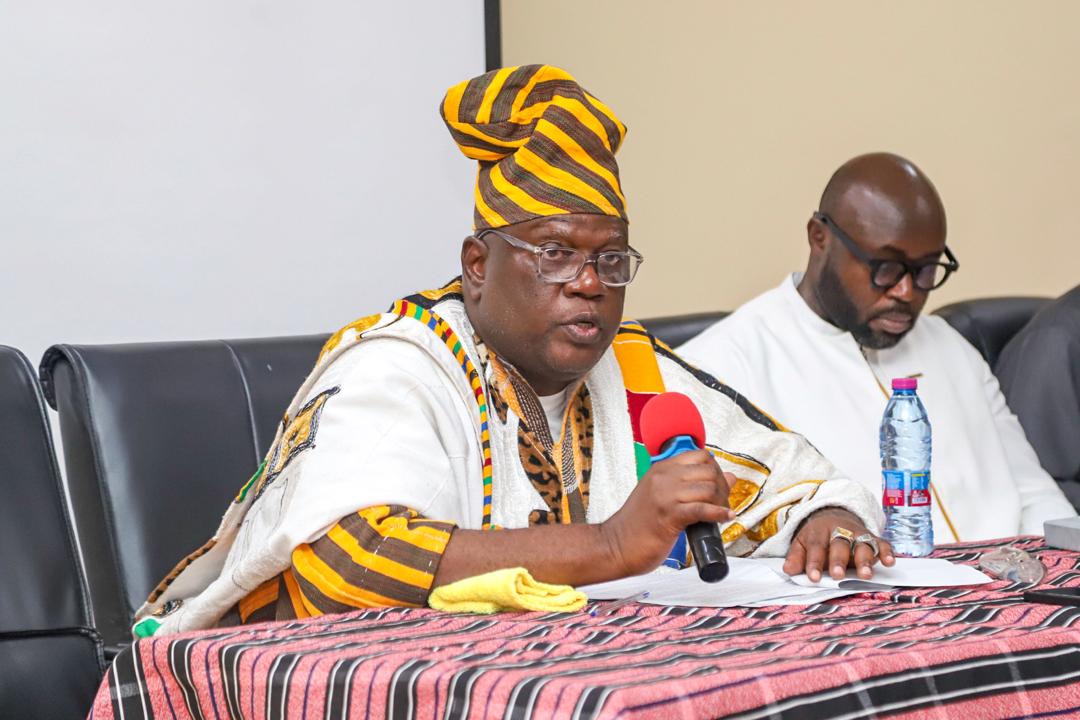
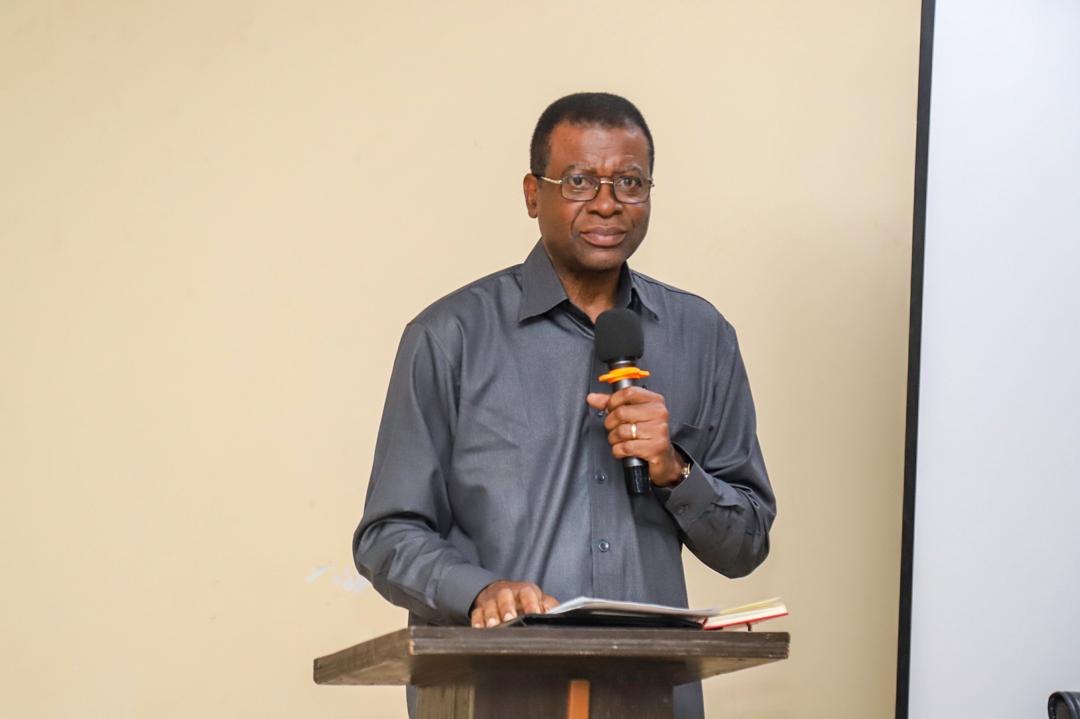
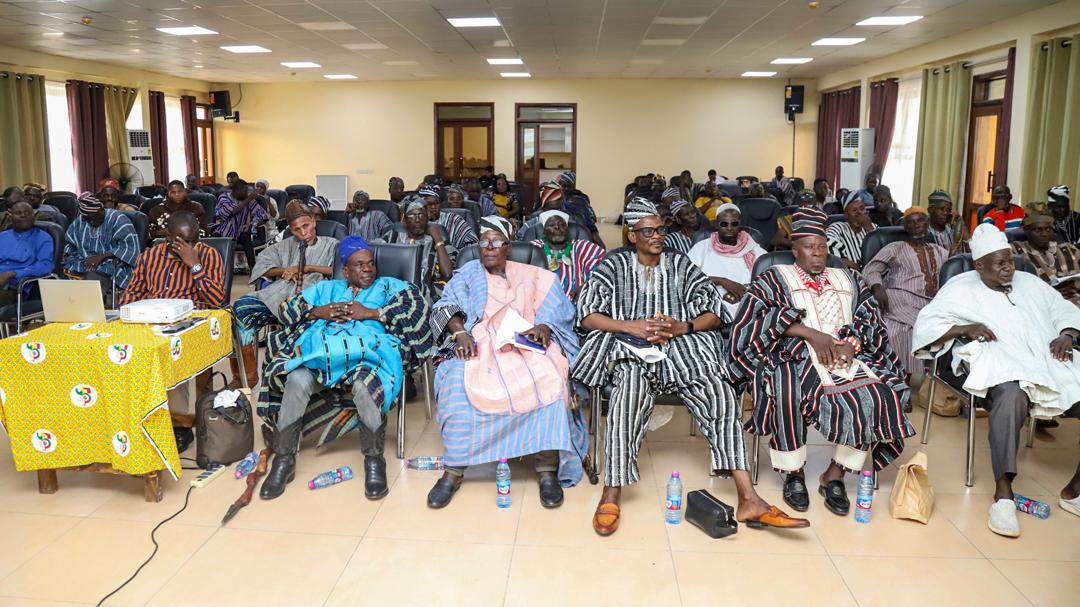
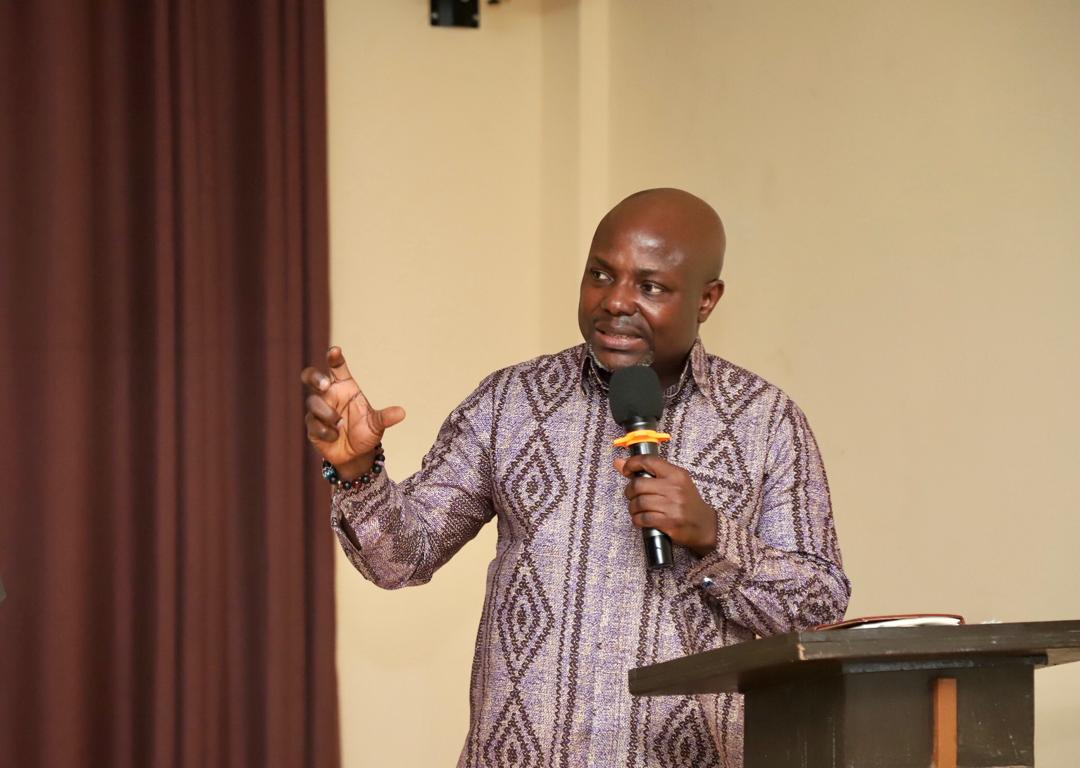
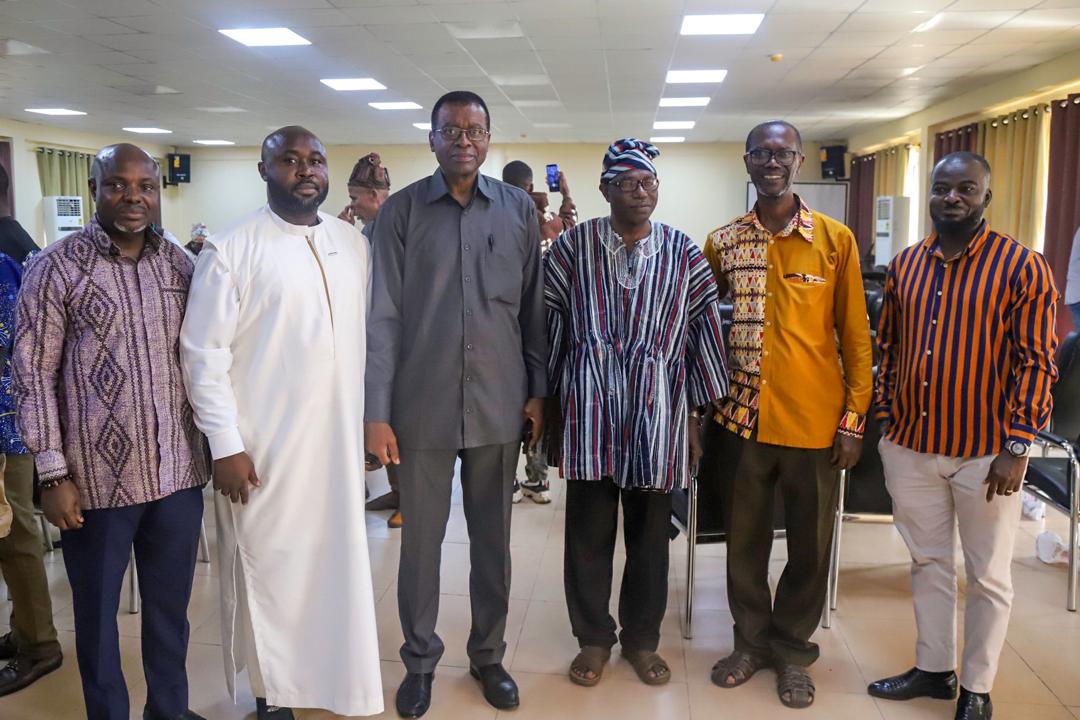
Lands Minister Collaborates with Minerals Commission to Engage Western and Western North Houses of Chiefs on Revision of Mining Policy and Laws
Lands Minister Collaborates with Minerals Commission to Engage Western and Western North Houses of Chiefs on Revision of Mining Policy and Laws
Hon. Emmanuel Armah-Kofi Buah (MP), Minister for Lands and Natural Resources led a team comprising Mr. Martin Kwaku Ayisi, Chief Executive Officer (CEO), Minerals Commission, Mr. Benjamin Aryee, former CEO of the Commission and Chair of the Policy Review Committee to deliberate on the reforms within the mining sector and solicit the support of the Western and Western North Regional Houses of Chiefs as part of efforts to revise Ghana’s mining laws and policy. Discussion focused on restructuring community mining, enhancing environmental protection, and strengthening governance in the sector. This engagement took place on July 11, 2025 at The Grove Essipong Beach Resort in Takoradi.
The ceremony was co-chaired by Ogyeahoho Yaw Gyebi II, the President of the National House of Chiefs and Omanhene of Sefwi Anhwiaso, alongside Nana Kobina Nketsia V, the President of the Western Regional House of Chiefs and Paramount Chief (Omanhen) of the Essikado Traditional Area. In his remarks, Ogyeahoho Gyebi emphasized the importance of Parliament rallying support for the Ministry and the Commission to ensure the passage of these commendable government initiatives and reforms. Nana Nketsia, who hosted the meeting, also commended the CEO of the Commission for his leadership in the fight against illegal mining.
The Minister expressed his heartfelt appreciation to the Chiefs for their support since his appointment. “It is both an honour and a privilege to be back home to the land of my birth, and to stand before this revered assembly of our traditional leaders – the custodians of our land, culture, and heritage” he remarked. Hon. Buah emphasised the governments groundbreaking initiative to transition Community Mining into Cooperative Mining by “introducing a structured cooperative model with mini-refineries to empower local communities”. He highlighted measures being rolled-out to safeguard the environment and protecting river bodies from pollution. The Minister stressed the significant role of Chiefs in the licensing process. He also noted that Community Development Agreements are going to be incorporated into the revised law. Hon. Buah reiterated that the fight against galamsey must be well coordinated and the principle of name and shame must be enforced
The proposed changes to the law were presented by Mr. Ayisi, who outlined the government’s plan to recategorize mining into three tiers: small-scale, medium-scale, and large-scale. This recategorization aims to facilitate Ghanaians’ transition into large-scale mining. He also reiterated the introduction of Cooperative Mining that will empower local communities. “There is a proposal to abolish Development Agreements as it has not benefited to the country” he remarked. The CEO emphasised that prospecting licences will be restricted to a maximum of nine years to prevent speculation and accelerate new mine project development.
Mr. Josef Iroko, Manager, Legal of the Commission, highlighted the role of Chiefs under the current law as landowners and discussed the function of Office of Administrator of Stool Lands in the management and disbursement of ground rent to traditional authorities. He clarified how compensation for surface rights and deprivation of land should be administered legally.
On his part, Mr. Benjamin Aryee presented an overview of the mining policy, highlighting emerging trends such as compliance with Environmental, Social, and Governance (ESG) standards, climate change, and the use of sophisticated technologies in mining operations.
The Chiefs intimated “we need to treat the root cause of illegal mining by educating our people and resolving land disputes. Our inability to properly demarcate land boundaries has exacerbated the problem”. They pledged to actively support the Minister to achieve the reset mandate in sanitizing the mining sector and enhance environmental stewardship and governance.
After several deliberations the chiefs raised concerns and recommended the following for consideration by the Review Committee:
- Small-Scale District Mining Committee be headed by a Chief and not a District Chief Executive (DCE) for better oversight and compliance to regulations.
- Proper and clear definition of Cooperative Mining and the need to ensure that indigenes and local communities are involved the decision-making process.
- Increased royalties and equity for communities – ensuring mining benefits directly reach indigenes through improved revenue sharing and converting surface rights into equity for mining host communities.
- Social impact development should be incorporated into the mining lease agreement and policy.
- Community Mining has become an albatross for perpetrating illegal mining operations hence.
In his closing remarks, Hon. Buah reassured the Chiefs that the government is committed to collaborating with traditional authorities and local communities to ensure that mining benefits all Ghanaians.
In attendance were officials from the Commission including Dr. Ahmed Tijani, Manager, Corporate Affairs & Information Technology, Mr. Francis Annobil Jnr, Takoradi Regional Manager, along with staff from the Tarkwa office.
-END-
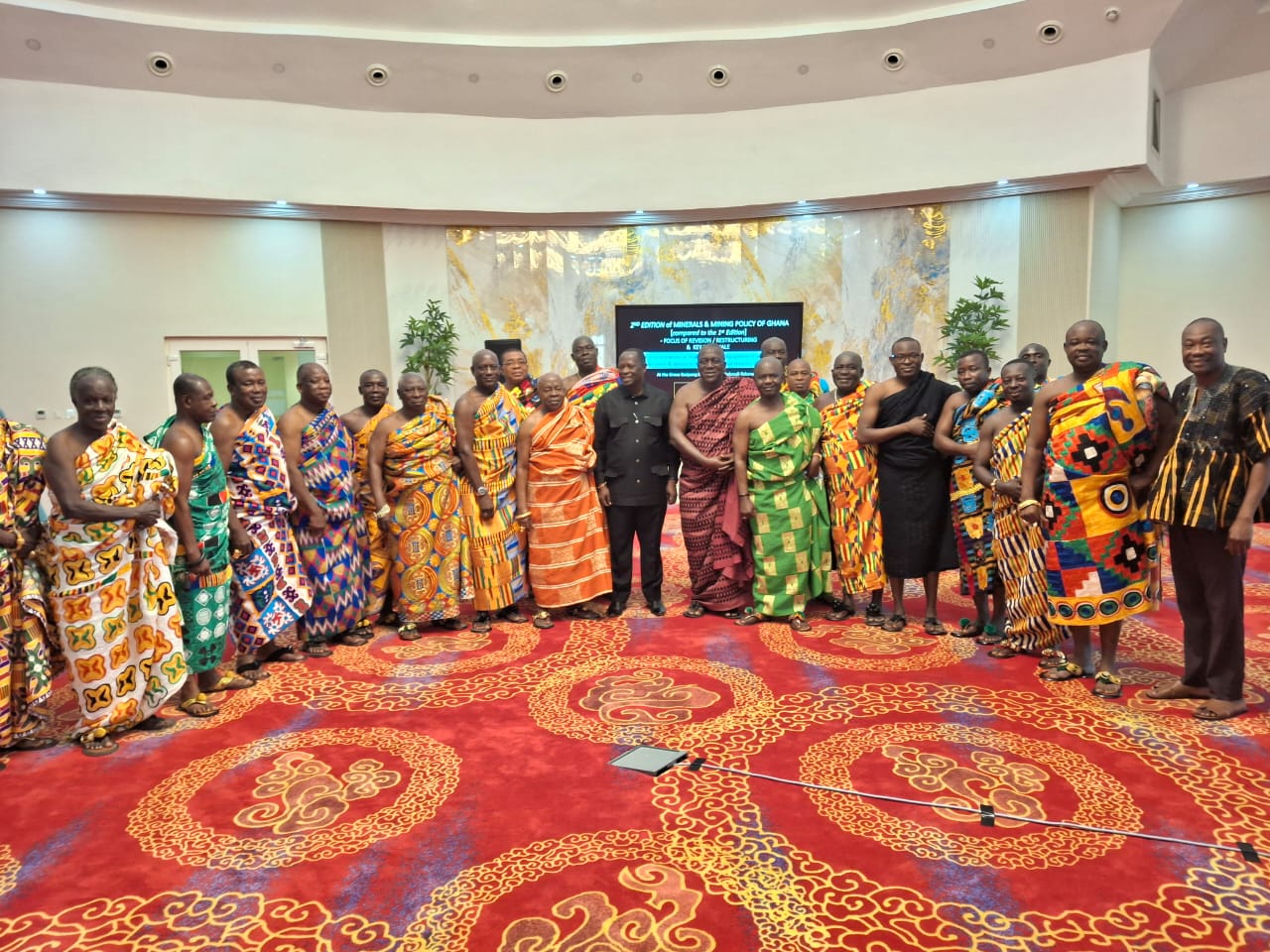
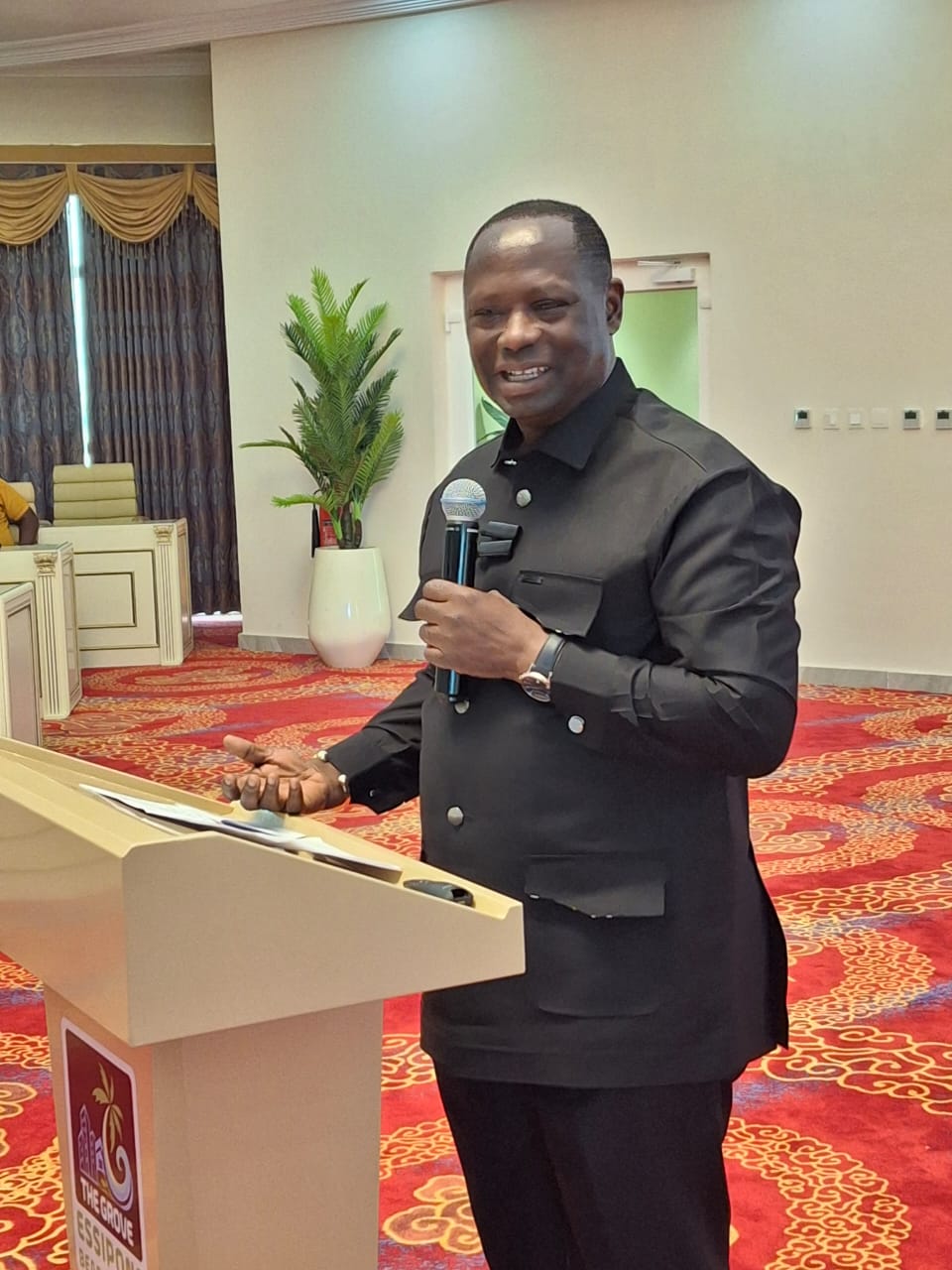
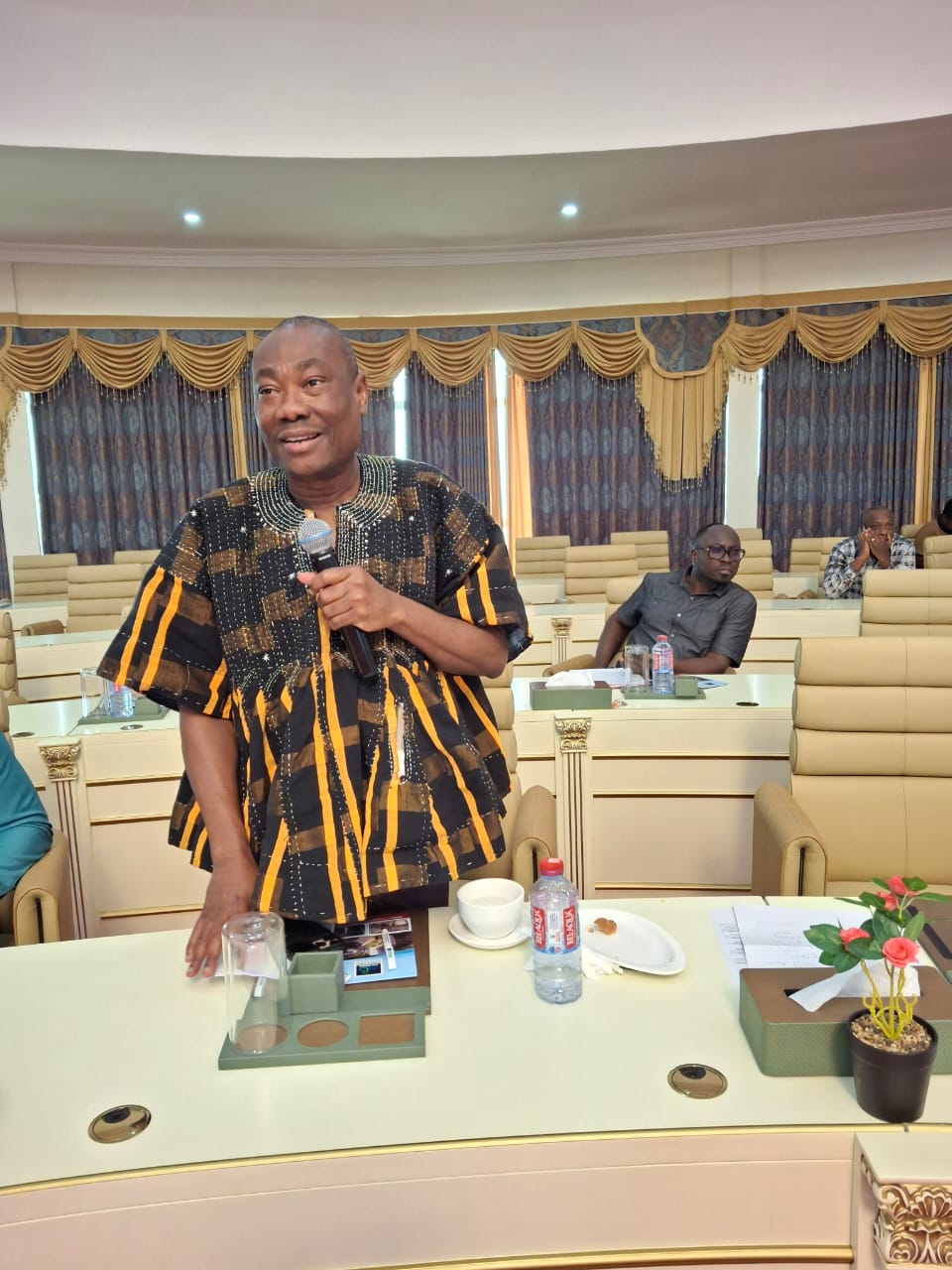
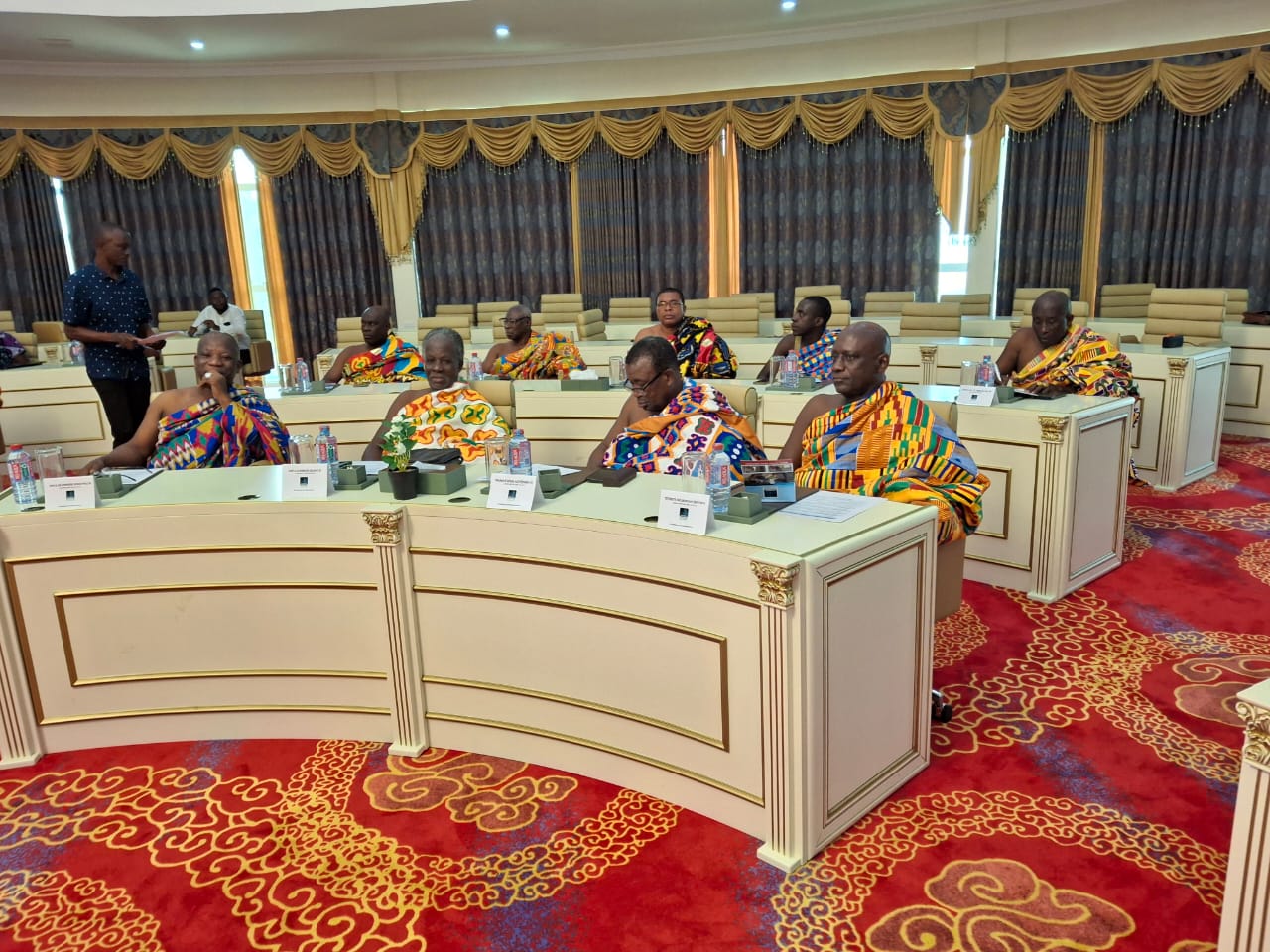
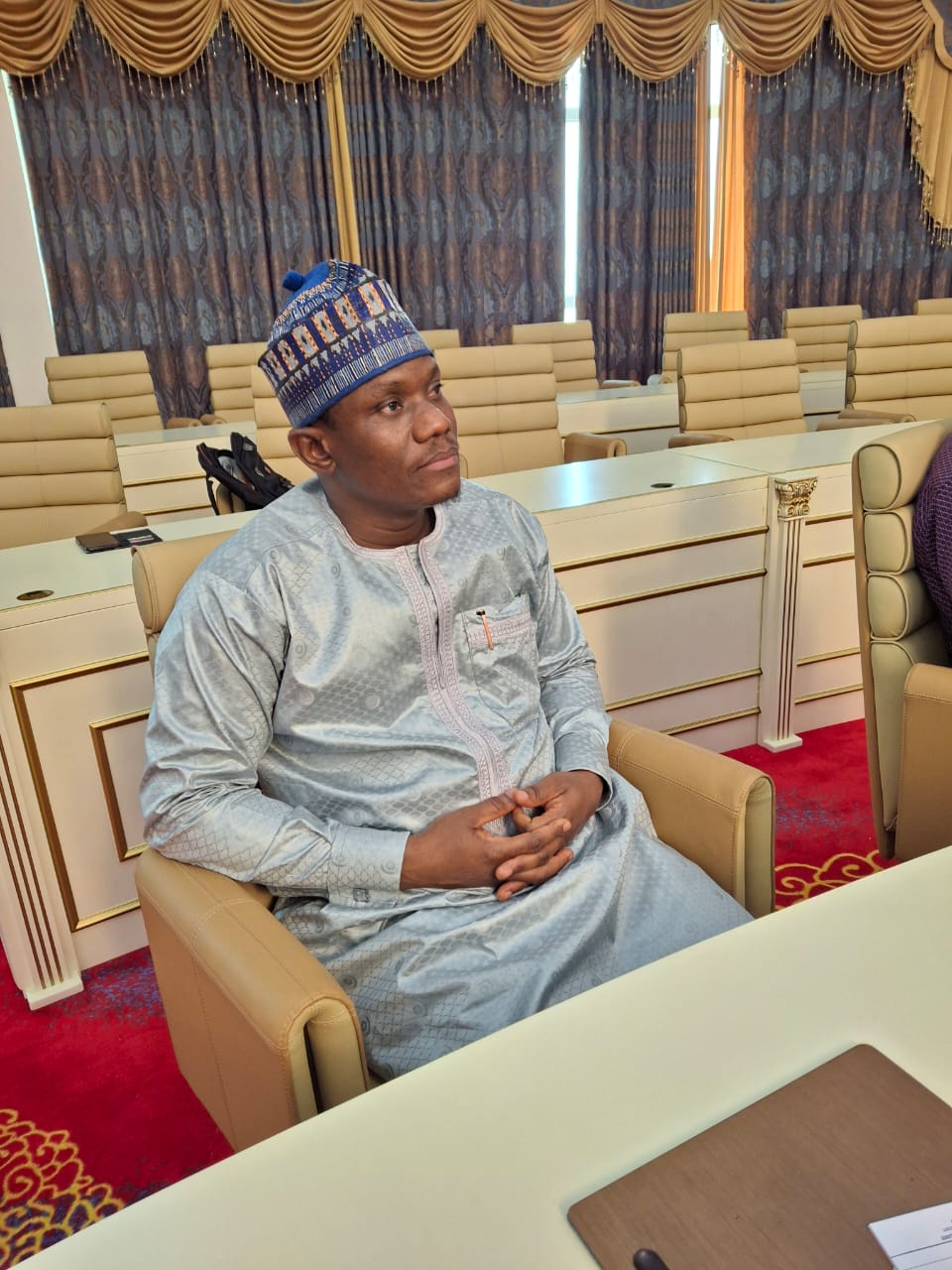
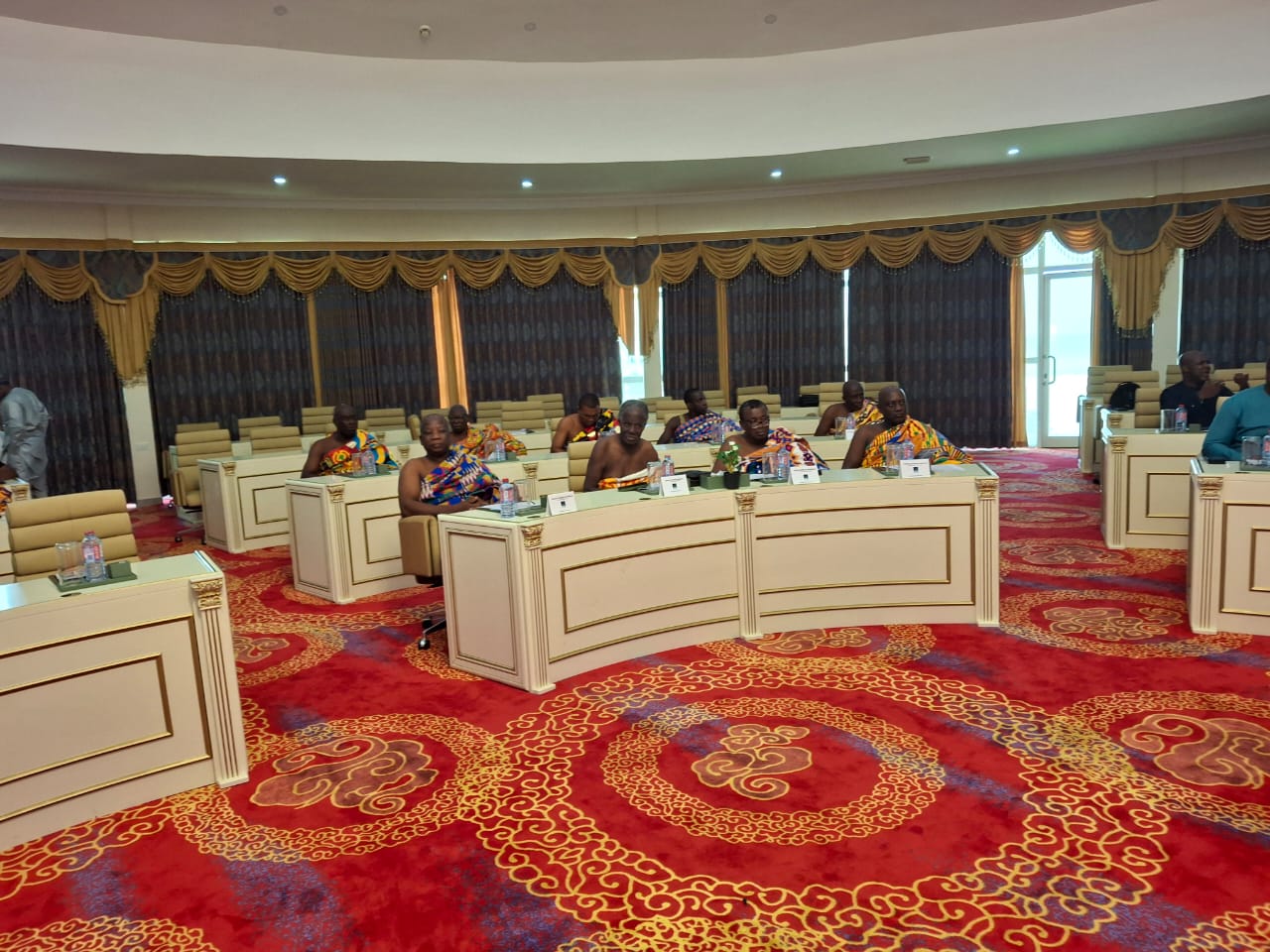
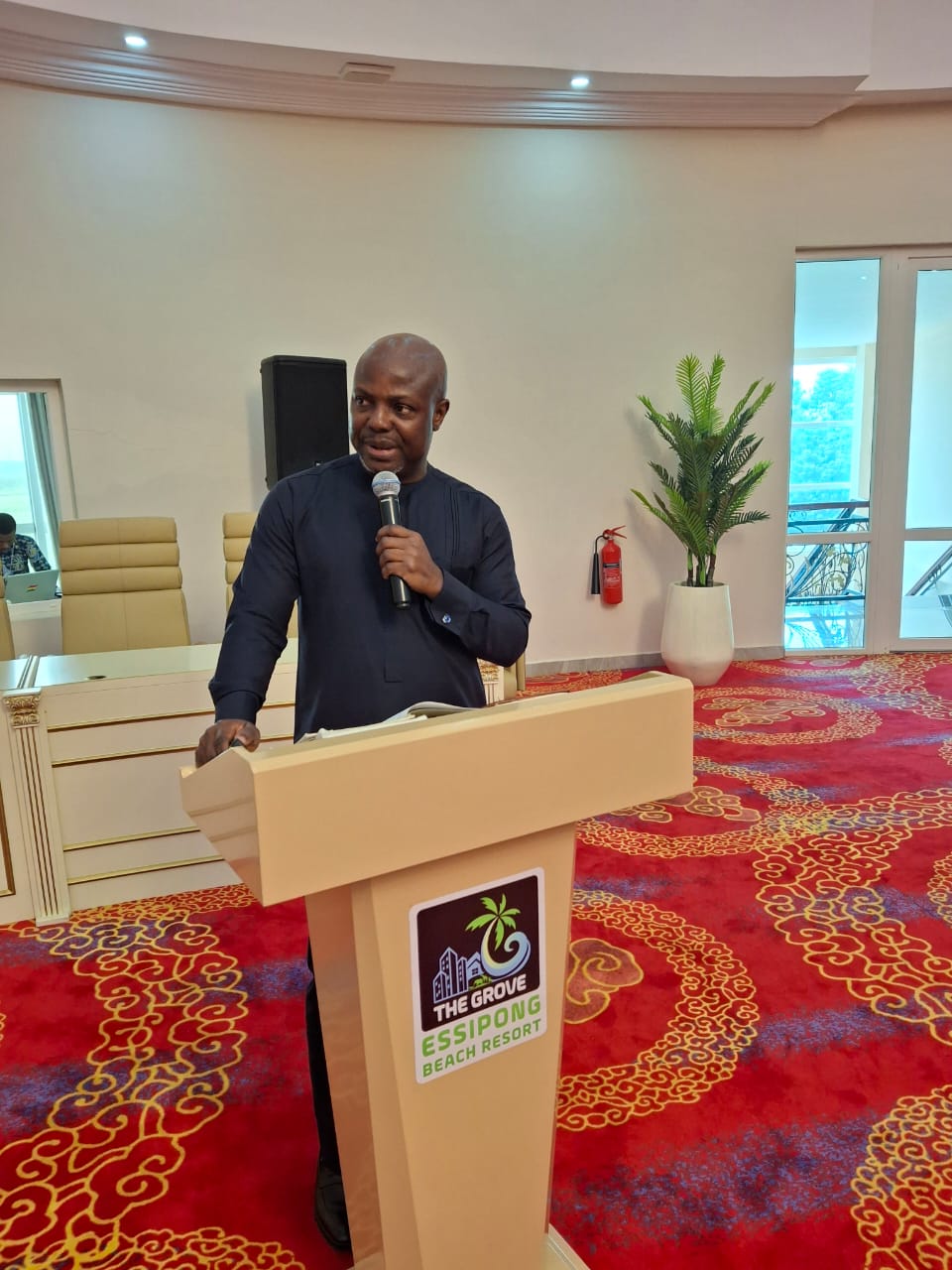
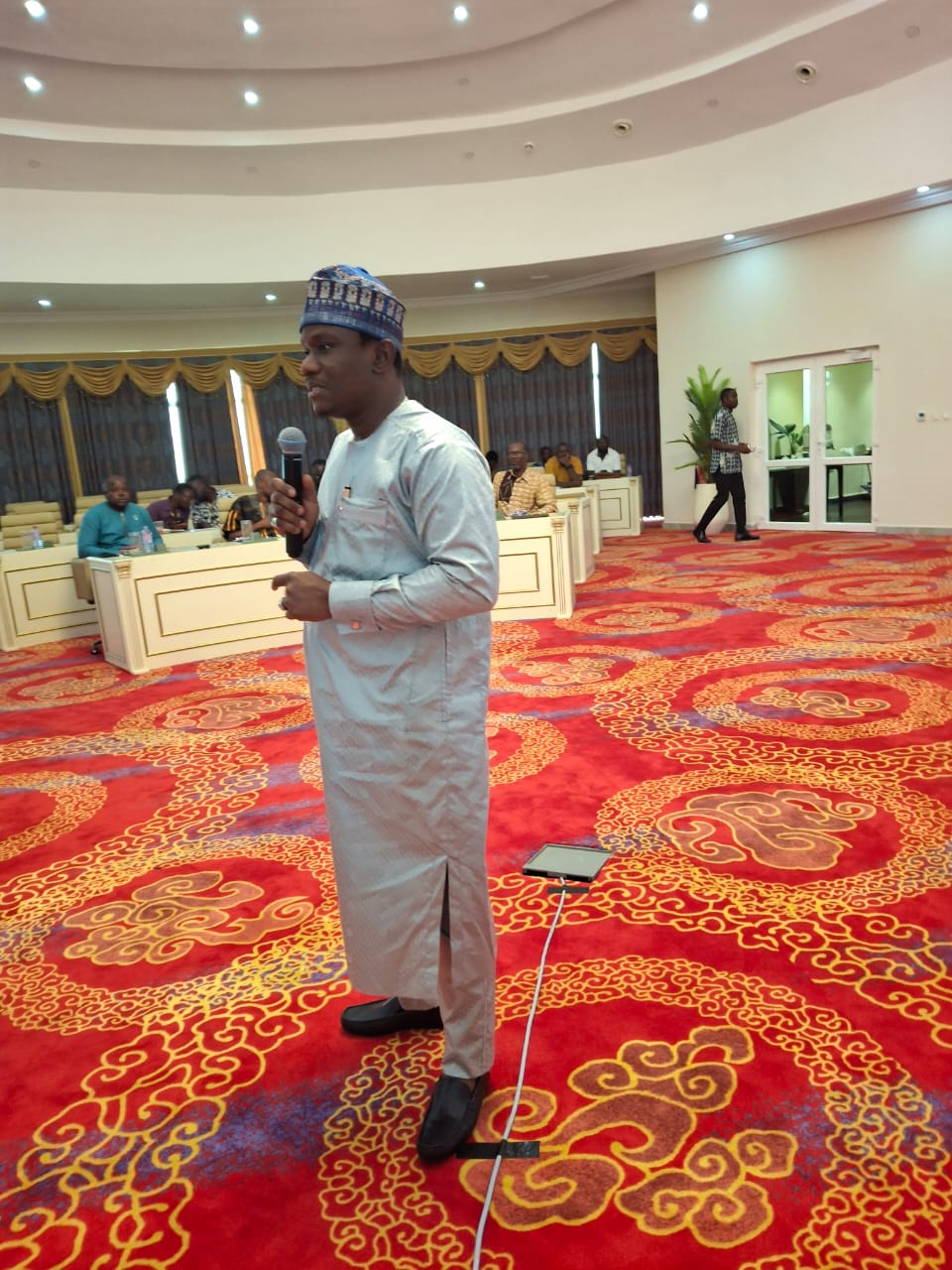
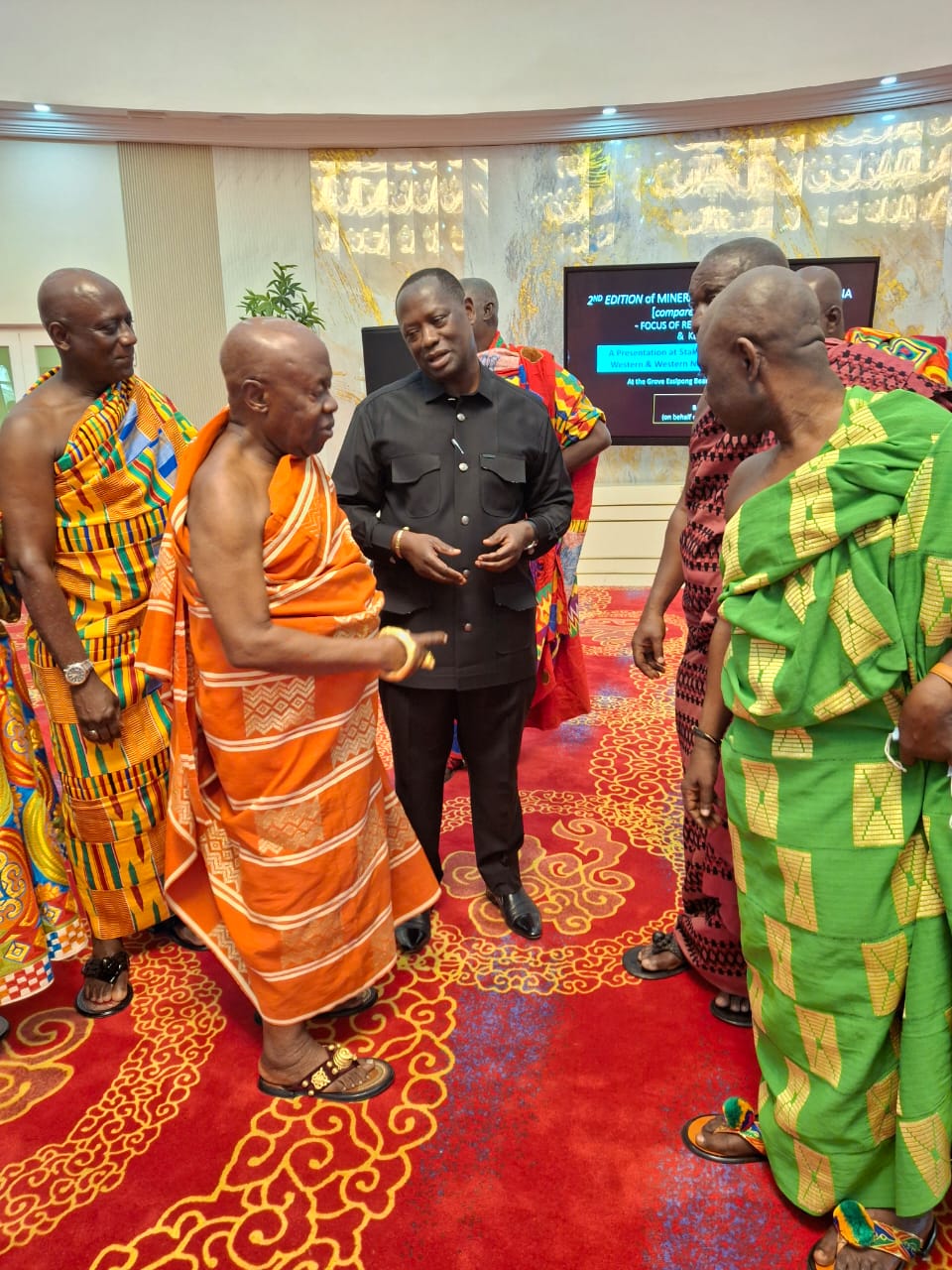
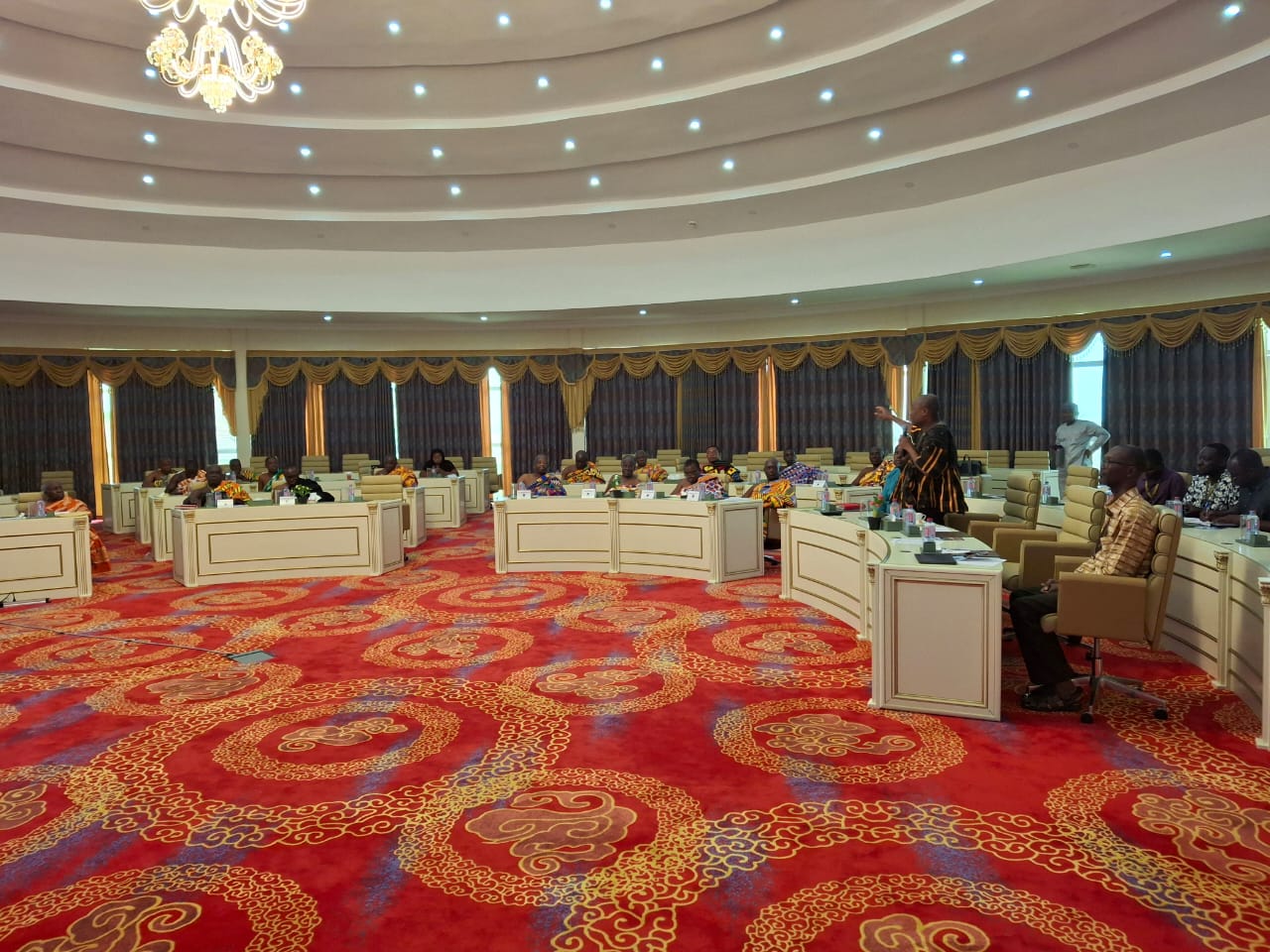
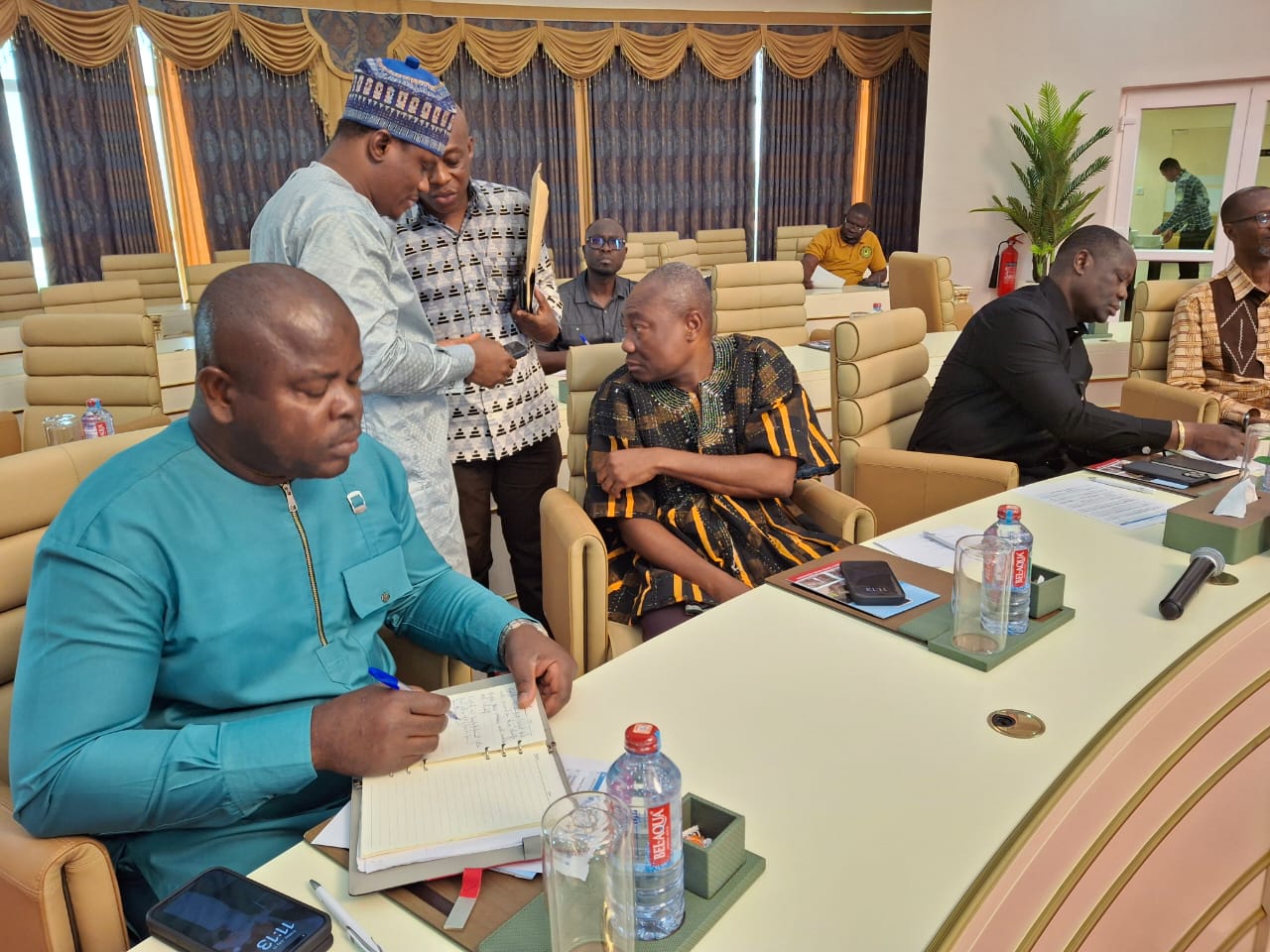
Minerals Commission Consults Central Regional House of Chiefs on Draft Amendments to Mining Policy and Legal Framework
Minerals Commission Consults Central Regional House of Chiefs on Draft Amendments to Mining Policy and Legal Framework
Cape Coast, July 9, 2025 — The Minerals Commission of Ghana has initiated a comprehensive review and update of the country’s 2014 Mining Policy and legal framework, aiming to modernize the sector and align it with sustainable development goals. As part of the ongoing stakeholder engagement process, a high-level delegation led by the Chief Executive Officer of the Minerals Commission, Mr. Martin Kwaku Ayisi (Esq), and Prof. Jerry Samuel Yaw Kuma, Advisor to the Minister of Lands and Natural Resources, met with the Central Regional House of Chiefs on July 9, 2025, to discuss the proposed amendments.
In his welcome address, Odeefuo Amoakwa Buadu VIII, President of the Central Regional House of Chiefs and Omanhene of the Breman Traditional Area, thanked the delegation for engaging with and educating the House on the mining policy and legal amendments. He stated that such consultations cannot be overemphasized and urged Nananom to contribute their inputs to enhance the work of the policy review committee.
So far, the review committee has held consultations with key stakeholders such as the Ghana Chamber of Mines, civil society organizations, academia, and research institutions. The overarching goal is to ensure that the benefits of mining are equitably distributed while promoting environmental sustainability and social responsibility.
Mr. Benjamin Aryee, former CEO of the Minerals Commission and former Advisor to the Minister, presented the review of the 2014 Mining Policy. He highlighted new provisions, including the Green/Critical Minerals Policy, emerging global trends like climate change, and Environment, Social, and Governance (ESG) standards, as well as government policies such as the introduction of Cooperative Mining and the recategorization of mining, with the creation of a medium-scale category. Mr. Aryee reiterated some of the challenges facing the mining sector and outlined strategic recommendations based on the draft policy, as follows:
- Centralized Gold Trading – The establishment of a centralized gold trading institution, such as a Gold Board, to enhance transparency and accountability in the gold value chain.
- Decentralization of the Minerals Commission – A strategic move to bring services closer to mining communities and improve support for small-scale miners.
- Deepening Community Relations and Engagement – The need to foster social harmony and reduce conflicts between mining companies and host communities.
- Local Content and Local Participation Development – Ensuring that local communities and businesses benefit meaningfully from mining operations.
- Health and Safety – Enhancing occupational health and safety standards and eliminating child labor in mining.
- Fiscal Transparency – Reforming fiscal policies to ensure fair revenue distribution and improved financial governance.
The Manager of Legal, Mr. Josef Iroko, discussed the current state of the mining laws and regulations, as well as administrative and regulatory guidelines. He spoke about the importance of Parliamentary ratification of mining leases and the rights and responsibilities of District Mining Committees in overseeing mining activities within their jurisdictions. Mr. Iroko highlighted the critical role of Chiefs and traditional leaders as allodial owners of the land and their entitlement to compensation as per Ghana’s mining laws.
Mr. Ayisi provided an overview of the Minerals and Mining Law, Act 2006 (Act 703), and outlined significant amendments to Ghana’s mining laws. He explained that the proposed Community Development Agreement (CDA), which seeks to allocates 1% of mining companies’ revenue, would help improve community development in an equitable manner. The CEO announced the introduction of a medium-scale category, a new classification to bridge the gap between small-scale and large-scale mining operations. He further noted that there would be a need to review and renegotiate existing mining contracts to ensure fairness and alignment with national interests.
Mr. Ayisi emphasized that the updated policy and legal framework would serve as a foundation for a more inclusive, transparent, and sustainable mining sector. He informed the House that after a mining lease or license is issued, the mineral right holder must obtain an Environmental Permit from the Environmental Protection Authority and an Operating Permit from the Chief Inspector of Mines at the Commission before commencing any mining activity. The CEO urged the Chiefs to verify any documents submitted by prospective mineral rights holders with the Commission’s offices. He also explained that there was a proposal to limit prospecting licenses to a maximum of nine years and cap mining leases at fifteen years.
During the discussion session, the House of Chiefs recommended that all Mining Concession Notices should be served on the Traditional Council, represented by the President of the House, the Paramountcy, and the local Chief of the designated area. They inquired about the difference between prospecting and reconnaissance mining and raised concerns about illegal sand-winning activities in the Region. Mr. Ayisi clarified that salt is a mineral regulated under the mining law and assured the House that a comprehensive plan would be developed to further engage communities involved in salt mining.
The CEO also encouraged the House of Chiefs to review the amendments and submit their proposals within two weeks for consideration by the Review Committee. He concluded by stressing that as Ghana positions itself as a leader in responsible mineral resource management, the proposed reforms are expected to significantly enhance the sector’s contribution to national development.
In response, Odeefuo Amoakwa Buadu VIII commended the CEO of the Commission and his delegation for their commitment to transforming the mining sector through this consultative process and pledged their full support to achieving this noble vision.
Also present at the gathering were Hon. Eduamoah Ekow Panyin Okyere, Central Regional Minister, Mr. Nelson Ahedor, Director of Small Scale and Industrial Minerals, and Dr. Ahmed Tijani, Manager of Corporate Affairs and Information Technology of the Minerals Commission.
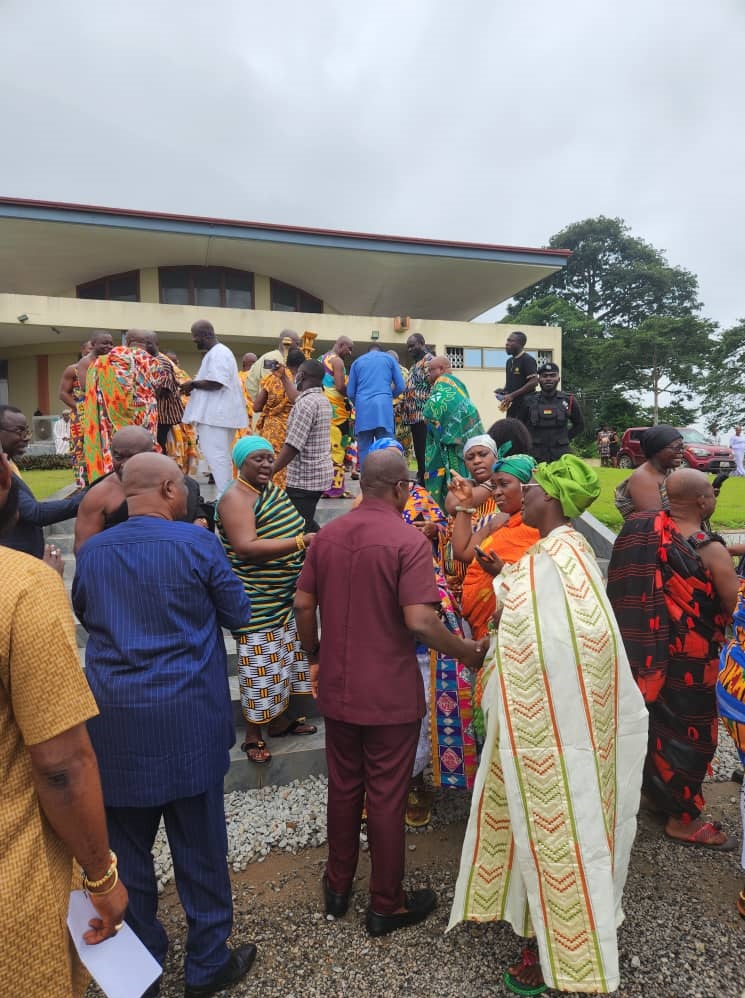
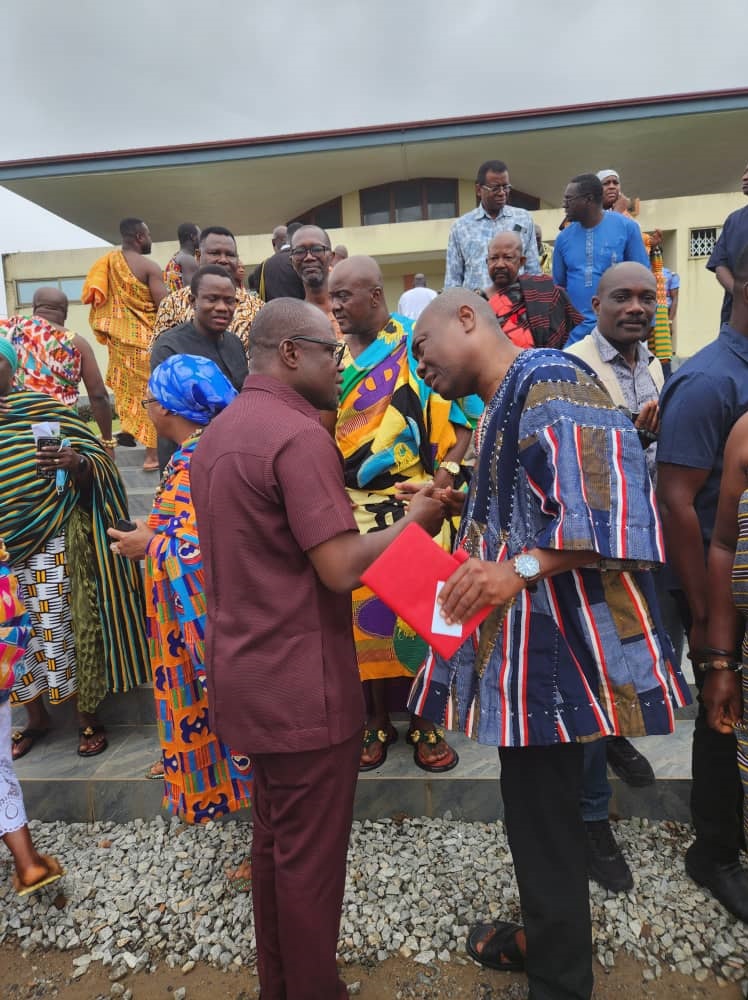
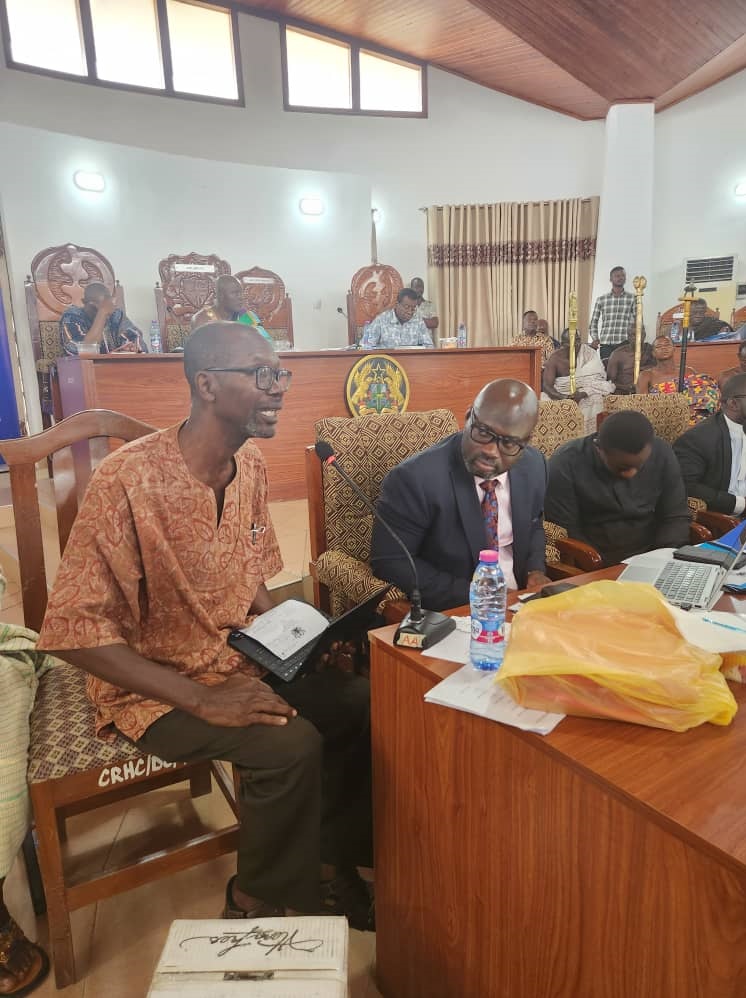
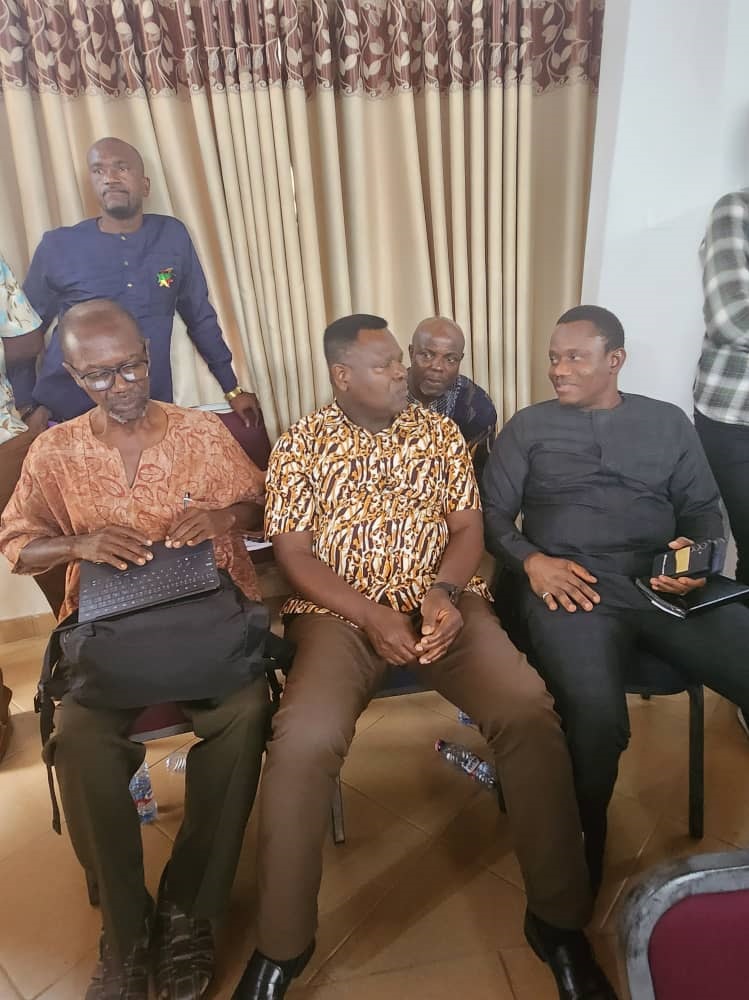
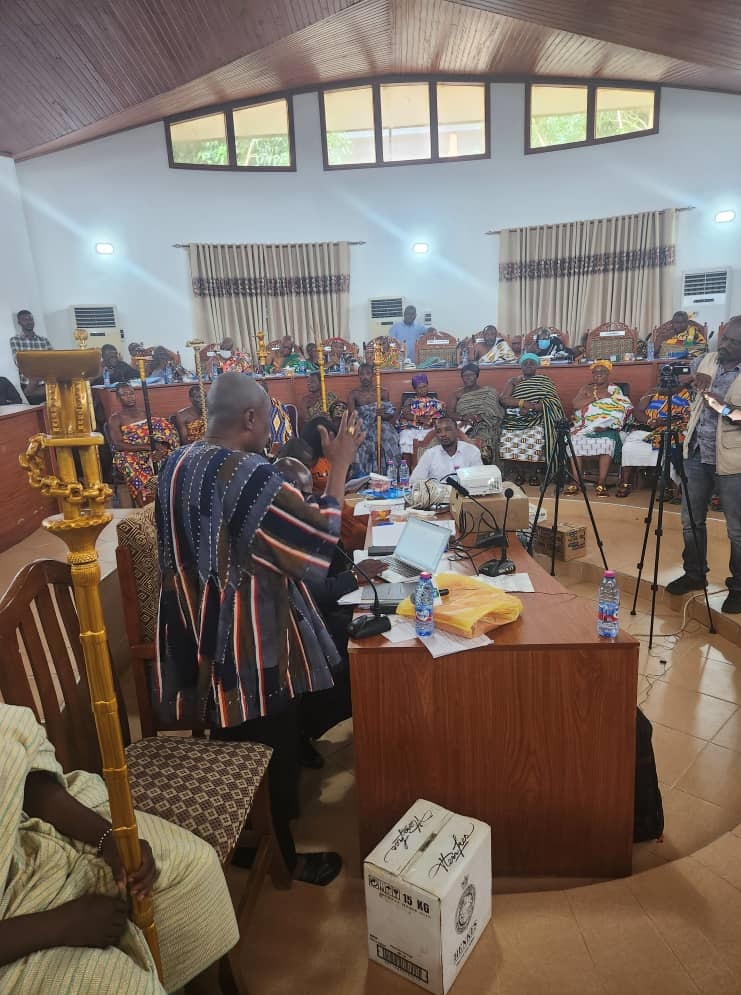
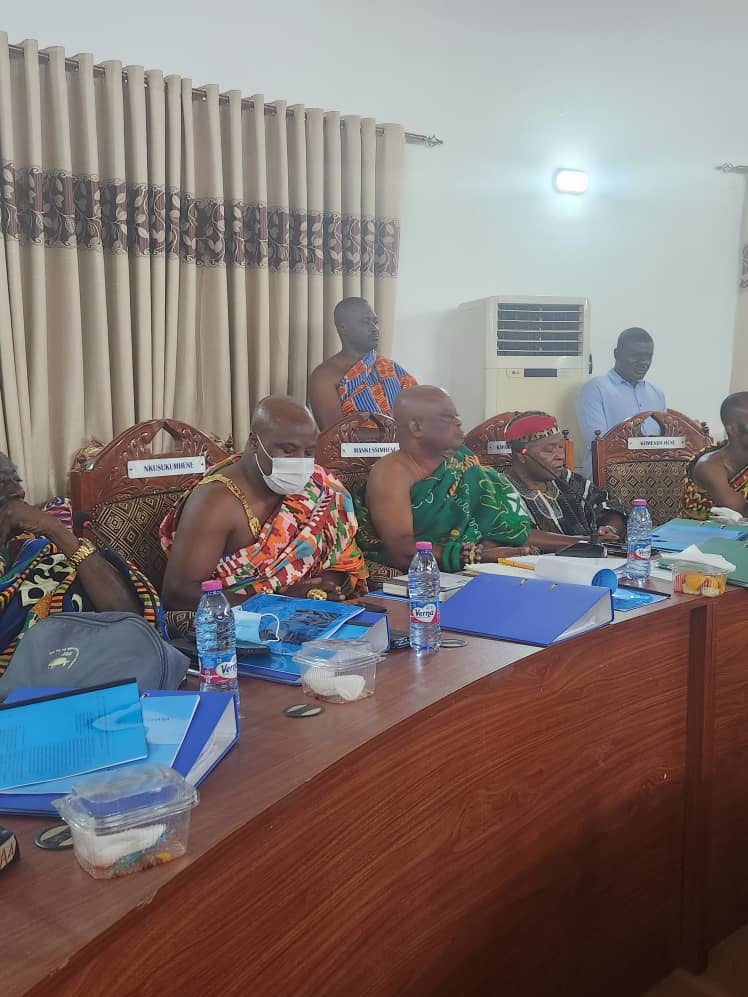
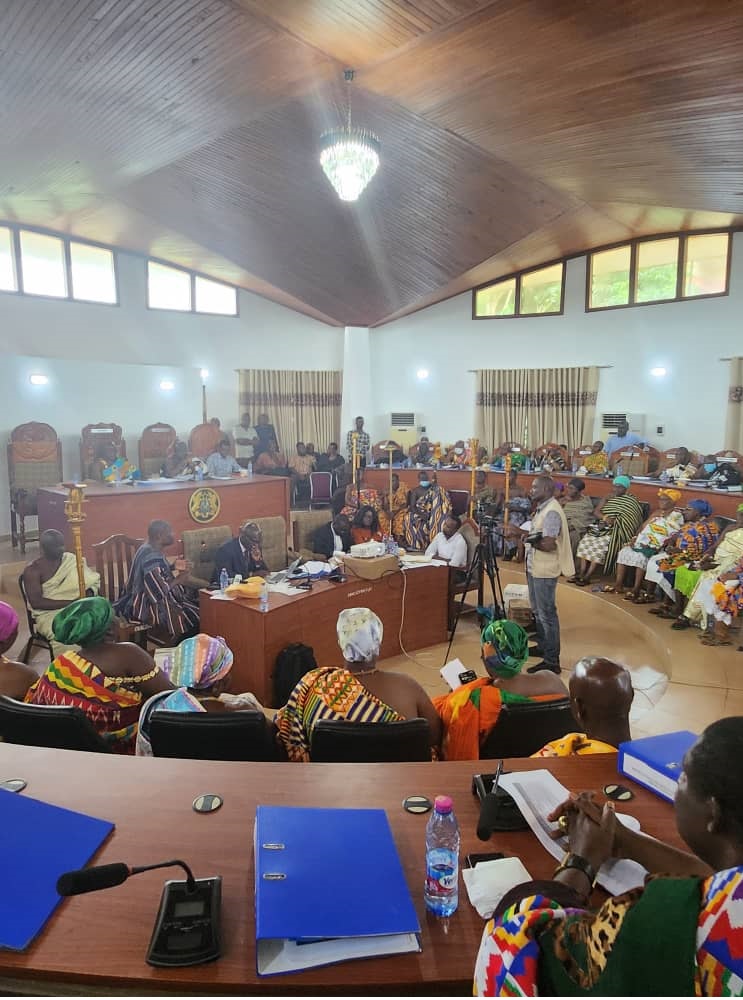
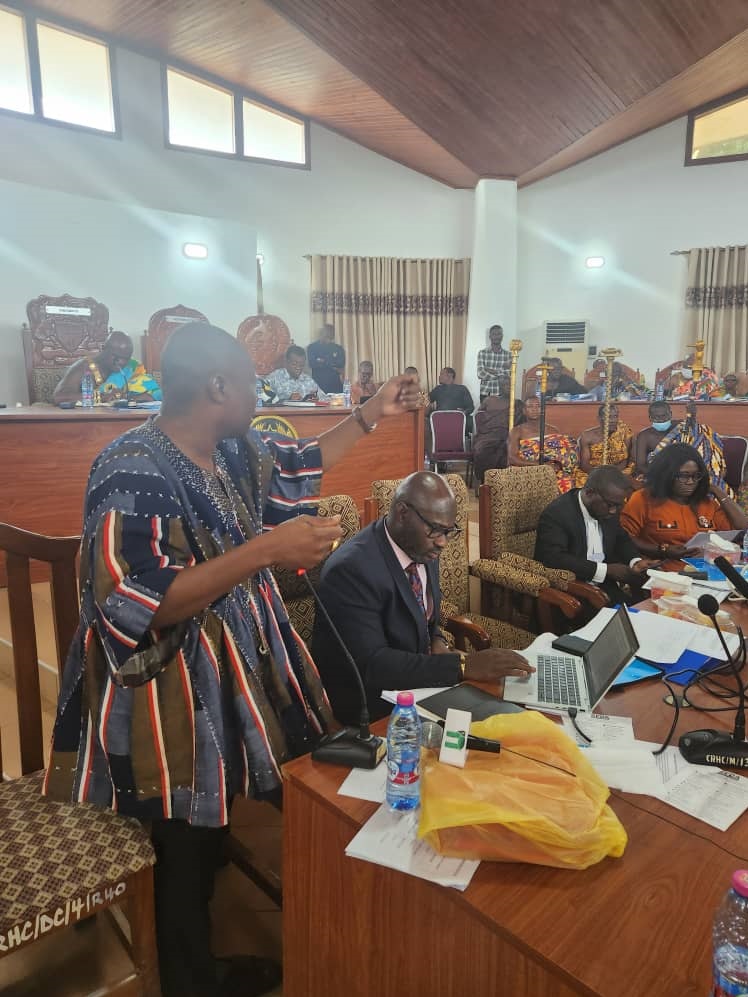
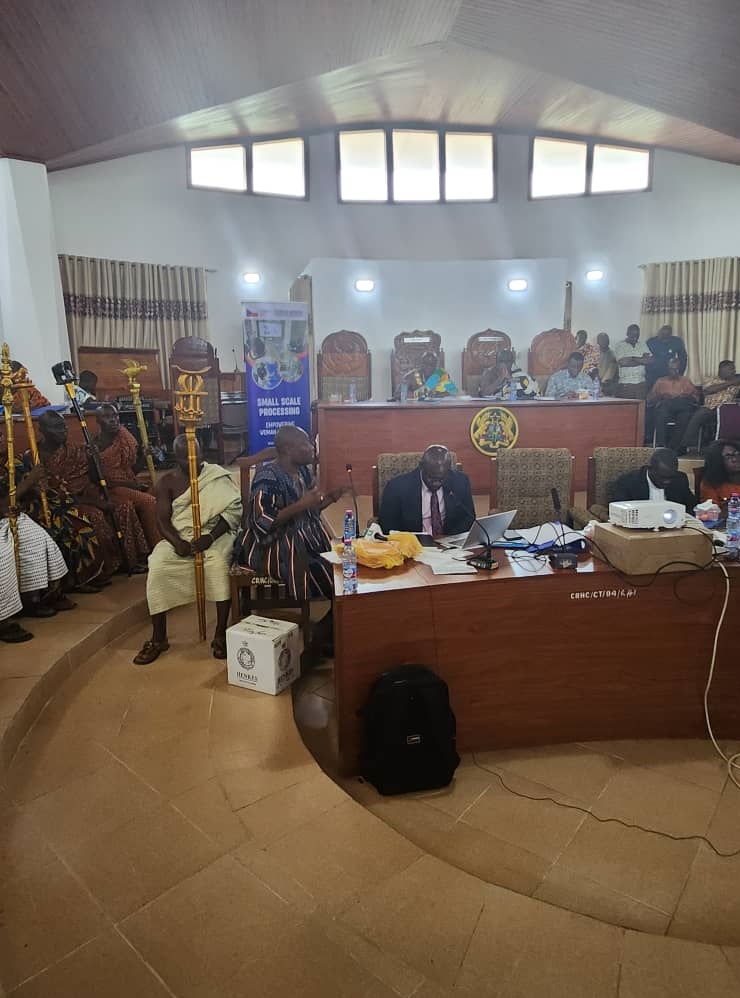
FAKE ONLINE RECRUITMENT PORTAL IN CIRCULATION
DISCLAIMER NOTICE!
FAKE ONLINE RECRUITMENT PORTAL IN CIRCULATION
The attention of the Minerals Commission has been drawn to a fraudulent online link (https://mincom-career.goprogram.xyz/Job#1752071296702) being circulated as a recruitment portal affiliated with the Commission.
We wish to categorically state that the Commission has not developed, authorized, or endorsed any such platform. The Commission wish to confirm that no official online recruitment portal currently in operation is authorized by the Commission.
The public is hereby cautioned to disregard the above link and treat any related communication or request for personal information or payment as fraudulent. We urge the public to remain vigilant and report any suspicious activity related to this matter.
For all official communications, announcements, and career opportunities, please refer to our verified electronic platforms.
Website: https://www.mincom.gov.gh/
E-mail: info@mincom.gov.gh
Enquiries: enquiries@mincom.gov.gh
https://www.facebook.com/people/Minerals-Commission-GHANA/100069327874781/
https://www.youtube.com/channel/UCMkGeadoB92dGmxuMkJDSEg
https://x.com/mincommgh
https://www.instagram.com/mincommgh/
https://www.linkedin.com/company/76520816/admin/dashboard/
Minerals Commission Pitched Proposed Review of Ghana’s Mining Policy and Mining Laws with the National Development Planning Commission.
Minerals Commission Pitched Proposed Review of Ghana’s Mining Policy and Mining Laws with the National Development Planning Commission.

June 19, 2025 and as part of the ongoing stakeholder consultation process, the Chief Executive Officer of Minerals Commission, Mr. Martin Kwaku Ayisi (Esq.) led the Review Committee of the 2014-Mining Policy and proposed amendments to the Minerals and Mining Act, 2006 (Act 703) in an engaged with the management of National Development Planning Commission (NDPC). The team from the Minerals Commission included the Board Chairman, Mr. William Ntow Boahene (Esq.); Professor Jerry Samuel Yaw Kuma, Technical Advisor to the Minister of Lands and Natural Resources; Ms. Victoria Awuni, Deputy CEO responsible for Policy Planning, Mineral Titles & Local Content; including the members of the Review Committee led by Mr. Benjamin Aryee, Former CEO of the Commission.
The Director General of NDPC, Dr. Audrey Smock Amoah led management of the Commission to receive and engaged with the team from the Minerals Commission. Dr. Audrey and the technical team of NDPC admonished the review committee to consider aligning the structure of the policy to the Policy Guidelines of NDPC to ensure consistency with the prescriptions of the Commission. Management of NDPC also proposed for the consideration of the committee to incorporate a Strategic Implementation Plan and an M&E Framework to obtain regular feedback for future policy review and amendments.
Mr. Ayisi requested management of NDPC to consider submitting detailed written proposals in two weeks for the consideration of the review committee. Management of both institutions were excited about the engagement and reckon to work even closer into the future.
<<<END>>>
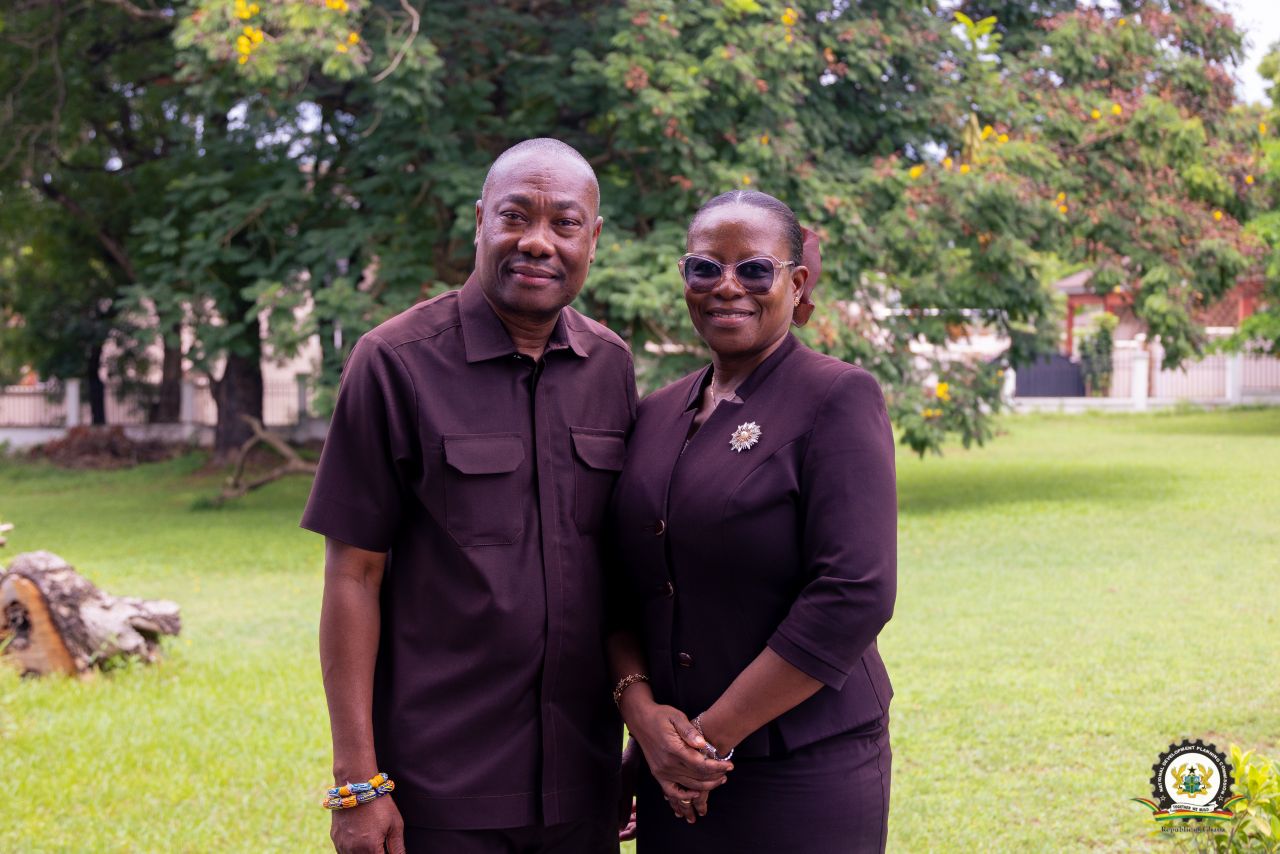
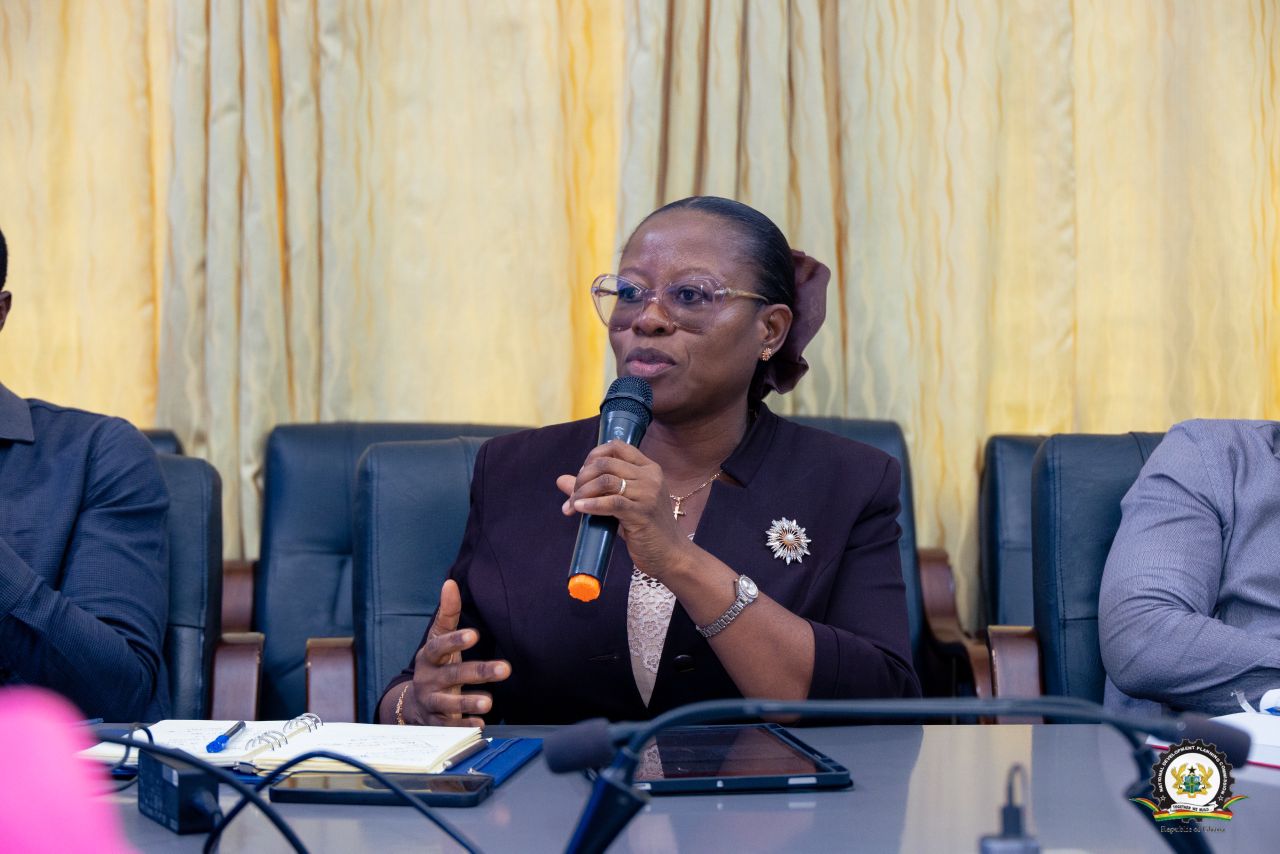
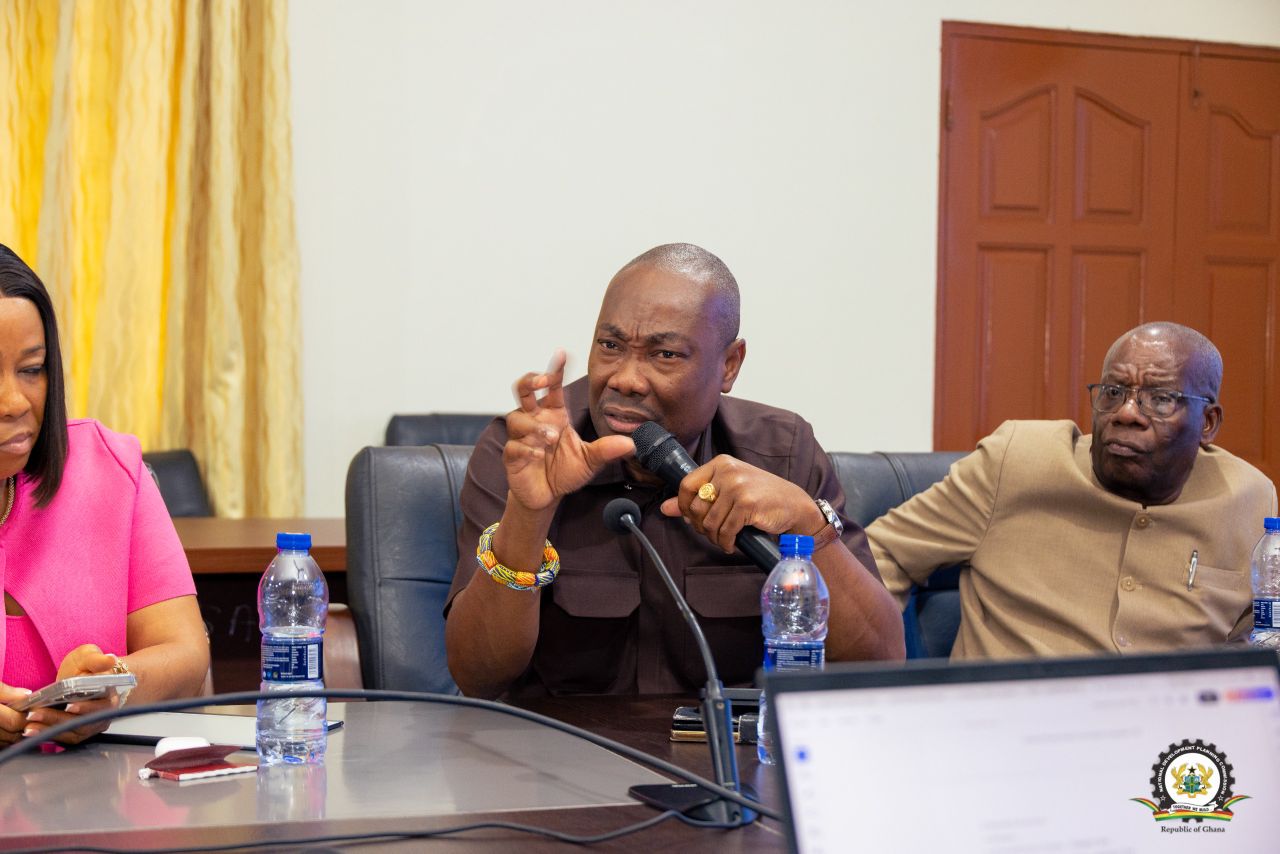
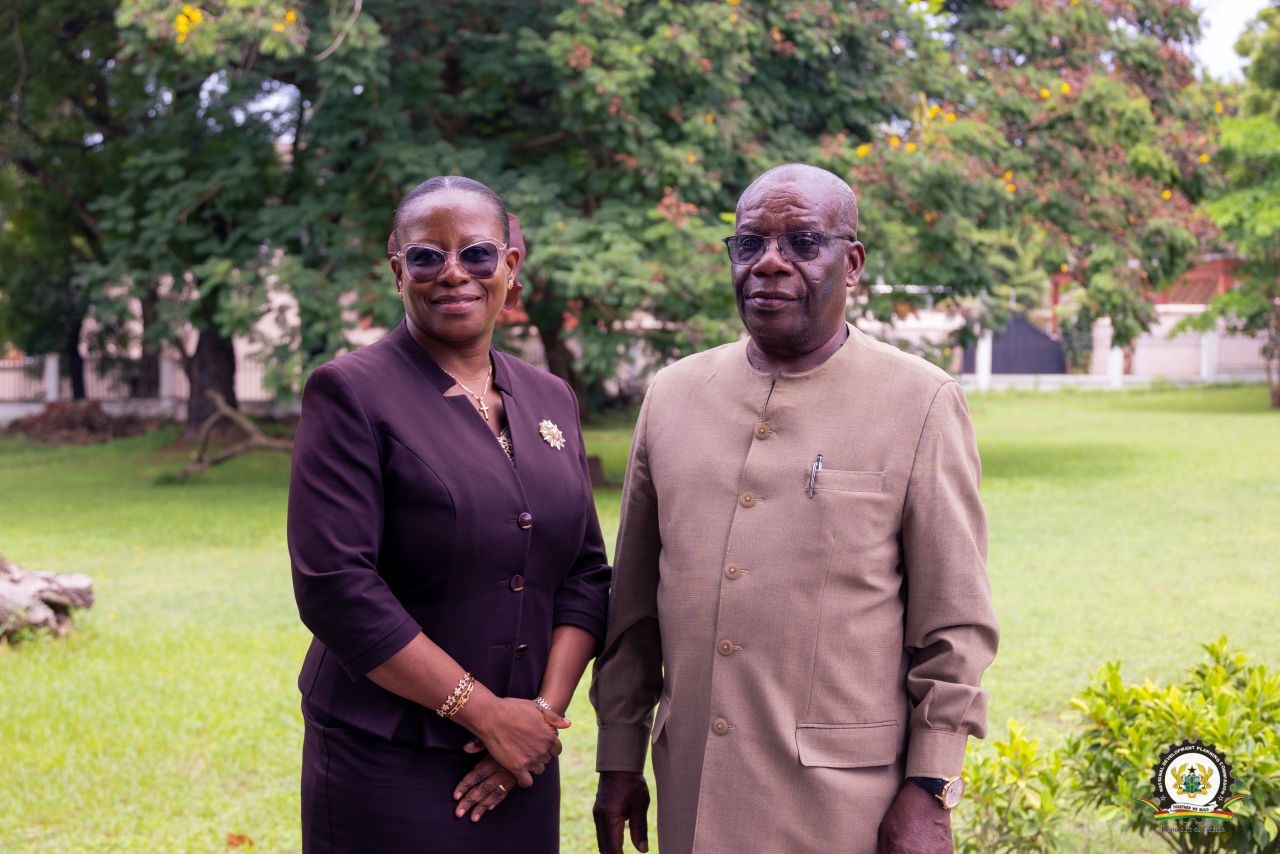
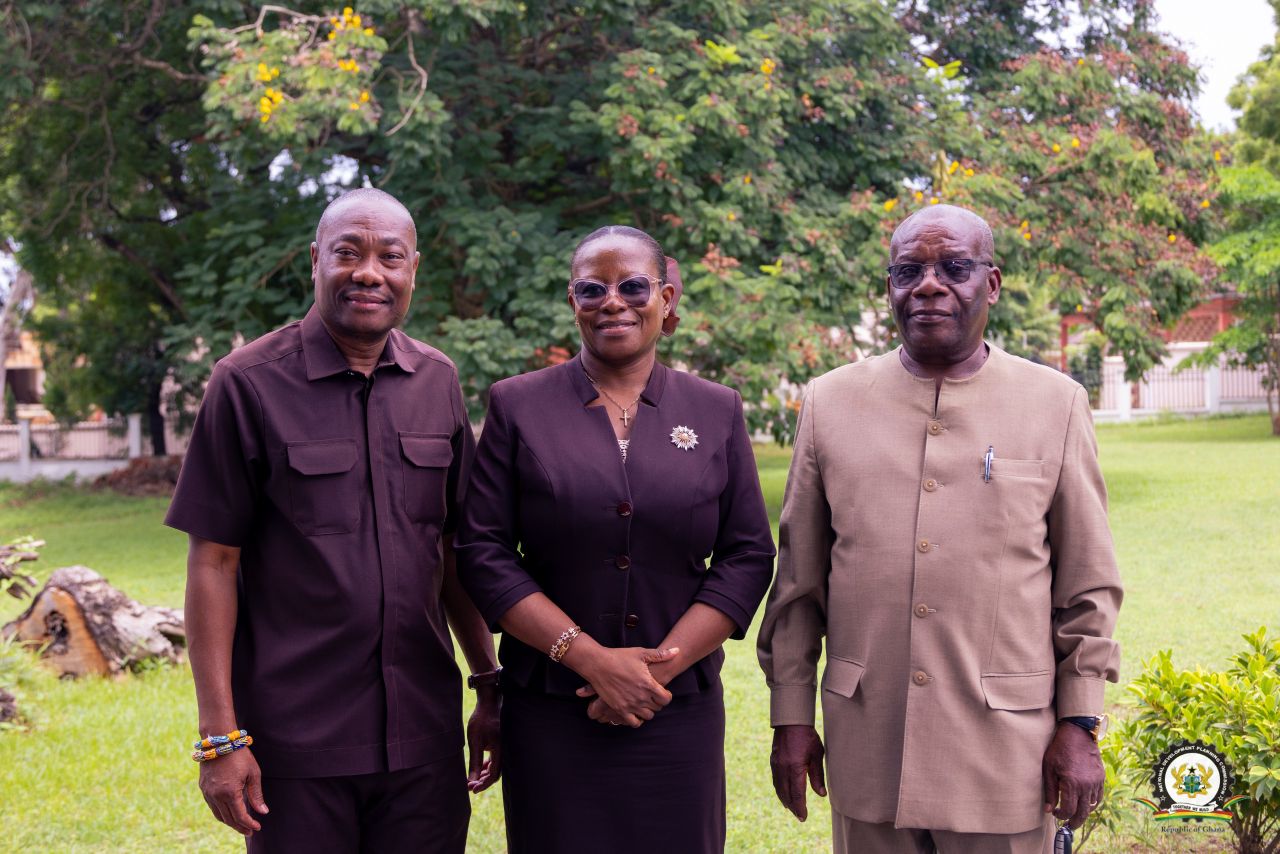
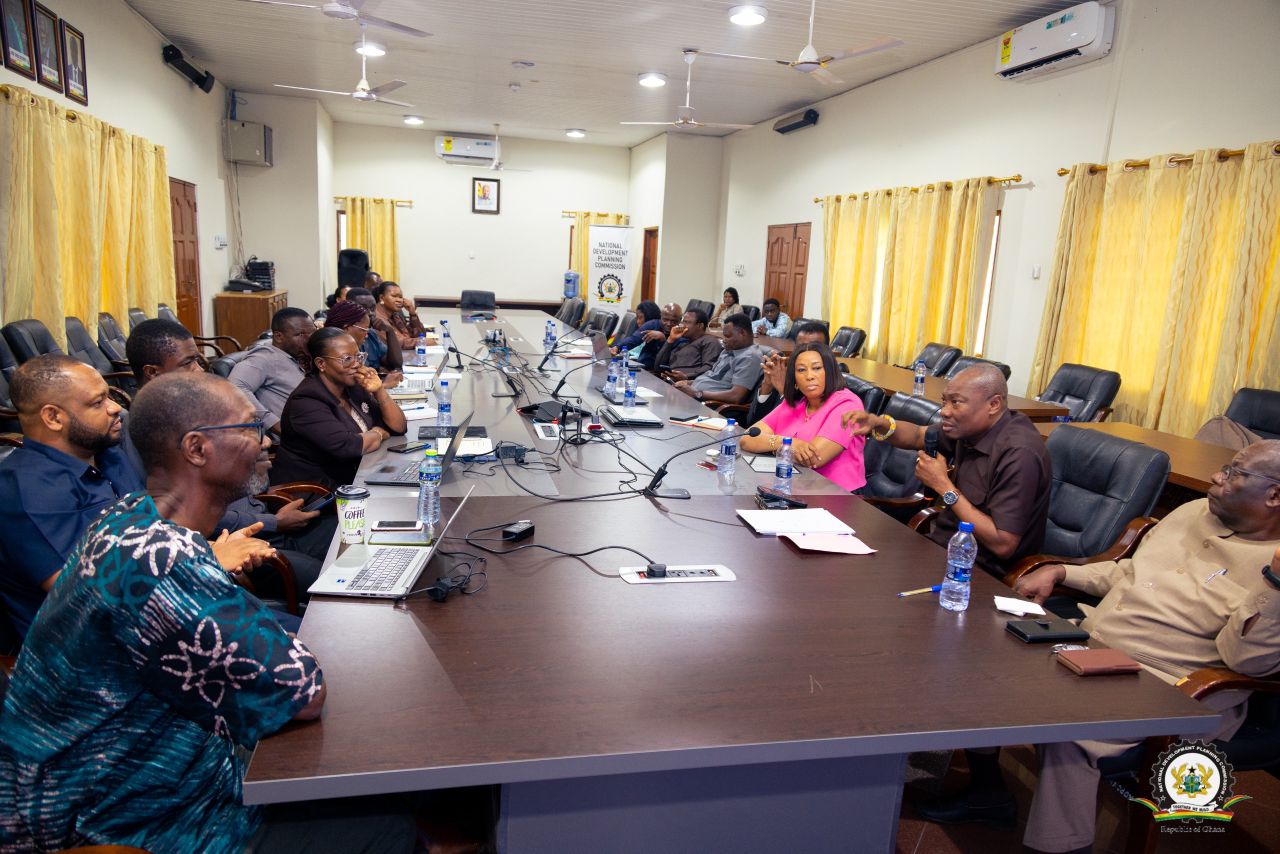
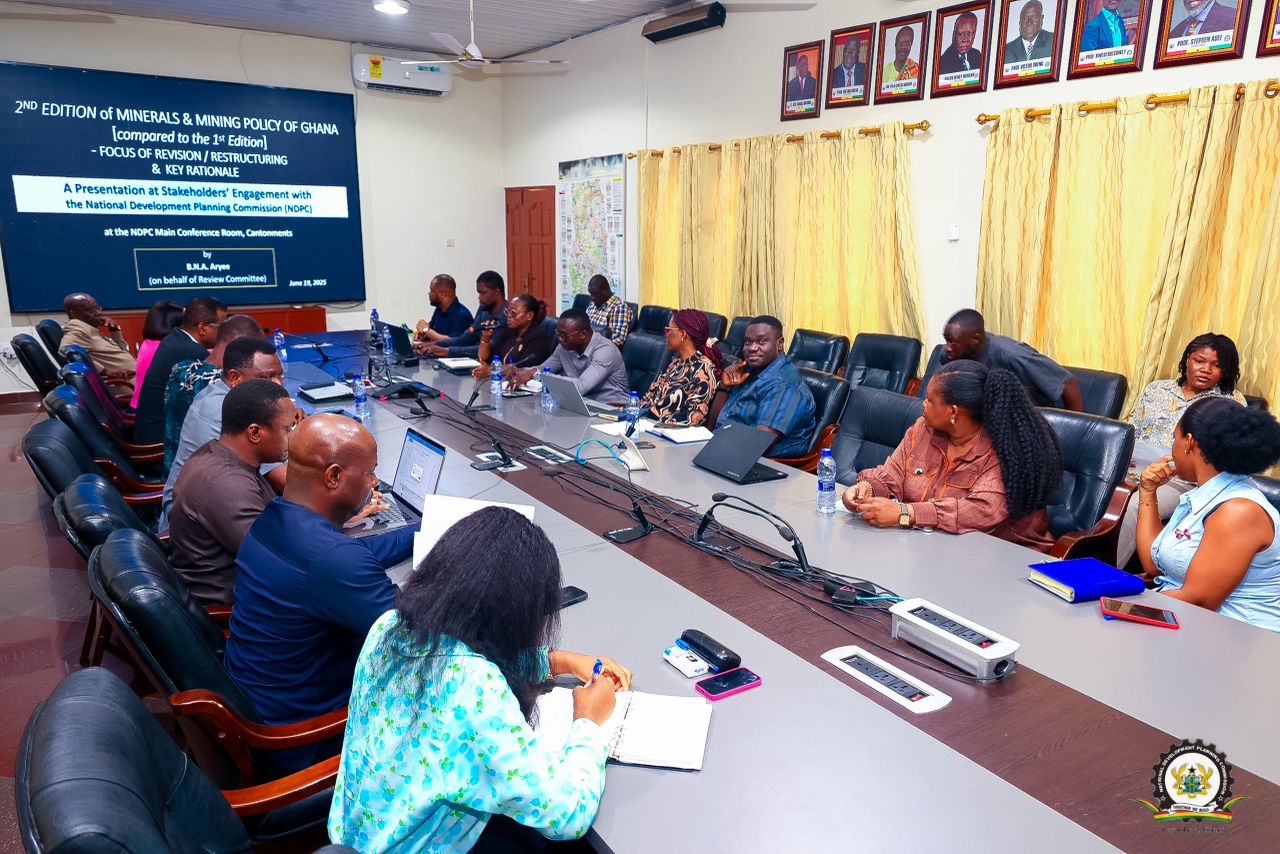
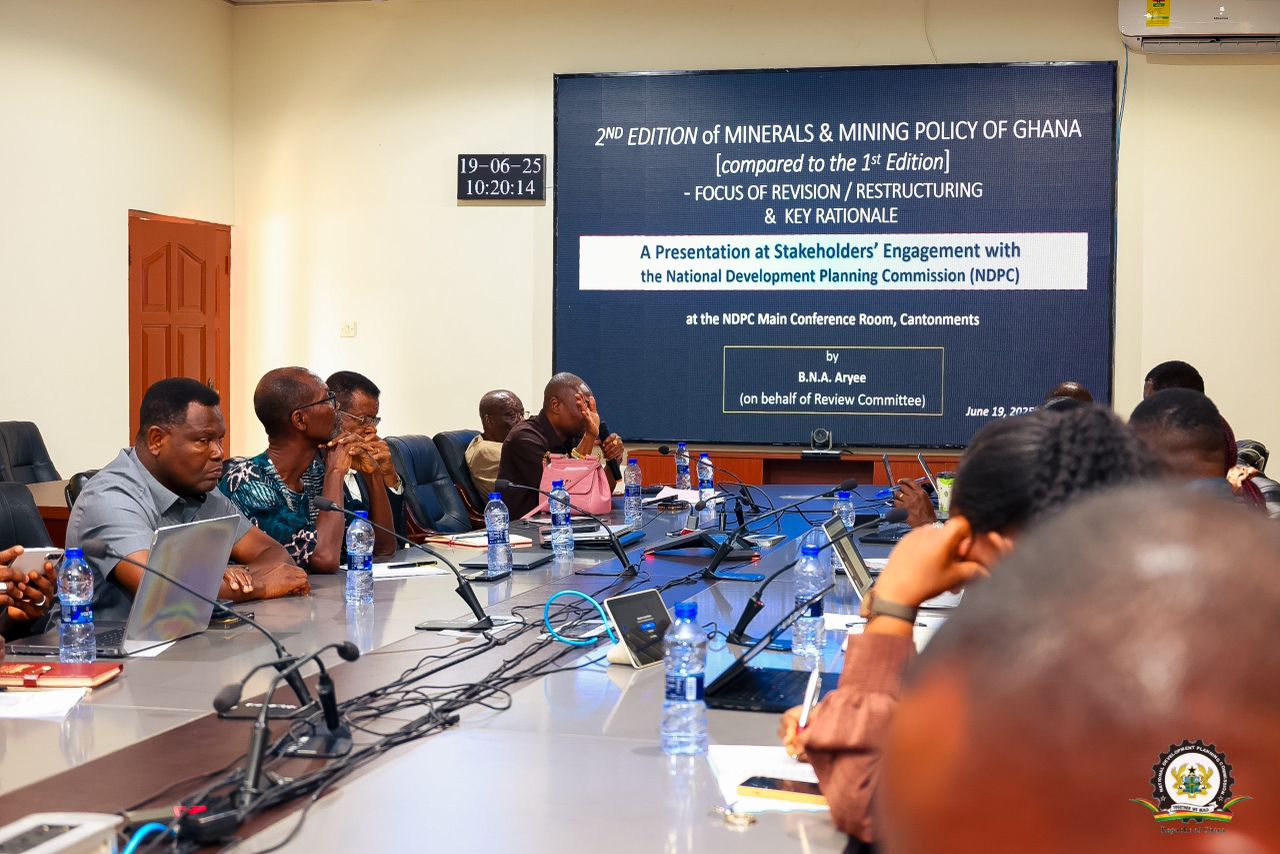
Minerals Commission Engages the Ghana National Association of Small-Scale Miners (GNASSM) On Policy and Legal Reforms
Minerals Commission Engages the Ghana National Association of Small-Scale Miners (GNASSM) On Policy and Legal Reforms.
As part of the ongoing engagement on the review of Ghana’s 2014-Minerals & Mining Policy and the Minerals and Mining Act, 2006 (Act 703), Minerals Commission at separate events, engaged with a cross section of members of the Ghana National Association of Small-Scale Miners (GNASSM) at Eastern Premier Hotel in the Eastern Region and at the Golden Beam Hotel in the Ashanti Region.
The Minerals Commission is the government agency responsible for regulating the mining industry, promoting investments and providing policy advice on all matters relating to minerals and mining in Ghana. The Artisanal and Small-scale Mining (ASM) sub-sector provides over one million direct and indirect job opportunities for the people of Ghana. Also, the ASM sub-sector has over the last few years undergone significant transformation and in particular contributed greatly to gold production.
According to the Bank of Ghana and the GoldBod export figures for the first quarter, 2025, indicates the ASM sub-sector accounted for 52.1% of total gold exports from the country. Therefore, the Commission considers the ASM sub-sector critical for the development of the Ghanaian economy.
In his opening remarks, the Chairman for the occasion and Technical Advisor to the Minister of Lands and Natural Resources, Prof Jerry Samuel Yaw Kuma admonished the association to actively engaged the resource persons and carefully scrutinize the proposed amendments to help enrich the policy and the law to ensure it stands the test of time.
The first part of the program witnessed the presentation by Mr. Benjamin Aryee on the Draft Reviewed Policy Document, which is anchored on emerging global trends such as the issue of climate change and transition minerals, challenges arising from the implementation of the current mining policy over the last decade, and the new policies of government, highlighting the importance of small-scale mining to the economy of Ghana, among others.
The second part of the program witnessed the presentation on the proposed amendments to the Minerals and Mining Act, 2006 (Act 703). This was led by the Manager responsible for legal, Mr. Josef Iroko.
During discussion, members of GNASSM expressed concerns over delays in the issuance of ASM licenses and appealed to the sector Minister to address the situation. In response, the Chairman of the occasion, Prof. Kuma informed the members of government’s priority to decentralize the processing and issuance of small-scale licenses at the District offices of the Commission. He said government has that as part of the major reforms of the sector.
The GNASSM members entreated Management of the Commission to provide clear qualification criteria for the intended mid-tier mining stream in the country. The miners emphasized the adoption of realistic policies to ensure that their members in good standing and with potential be upgraded to Medium Scale Mines as part of government’s priority. “With the advent of Medium Scale Mining, it is envisaged that mining bonds will be put into classes to enable our members comply with the requirements”, said by a miner.
The issue of support for women in mining was raised, highlighting the need to put in place provisions to deal with their concerns. They advocated for consideration of the Policy Review Committee for incentives to support the few women in the business of mining and to encourage other women into the industry.
Though within the purview of EPA, the miners raised concerns over the omnibus requirement for posting Reclamation Bonds for mining and called for reconsideration to vary same based on the size of concessions.
It emerged that legal backing for large scale mining lease holders to retain rights over their concessions, whilst their renewal applications are being considered, the ASSM mining lease holders often are vulnerable losing their concessions to some Chiefs as a result of delays in processing their renewal applications. This called for a proposal to incorporate amendments to grant ASSM lease holders equal rights, whilst their renewal applications are pending consideration.
GNASSM and its members in the Eastern and Ashanti Regions were encouraged to submit written proposals through their leadership for the consideration of the Mining Policy Review Committee.
The Committee is scheduled to engage with members of GNASSM in the Upper East, Upper West and Savanna Regions in Tamale. Also, those in the Central, Western North and Western Regions in Tarkwa.
In attendance were officials from the Commission, namely Mr. Nelson Ahedor, Director of Small-Scale & Industrial Minerals, Dr. Ahmed Tijani, Manager, Corporate Affairs & IT, Mr. Paul Dawson, Manager, Ashanti Region among others.
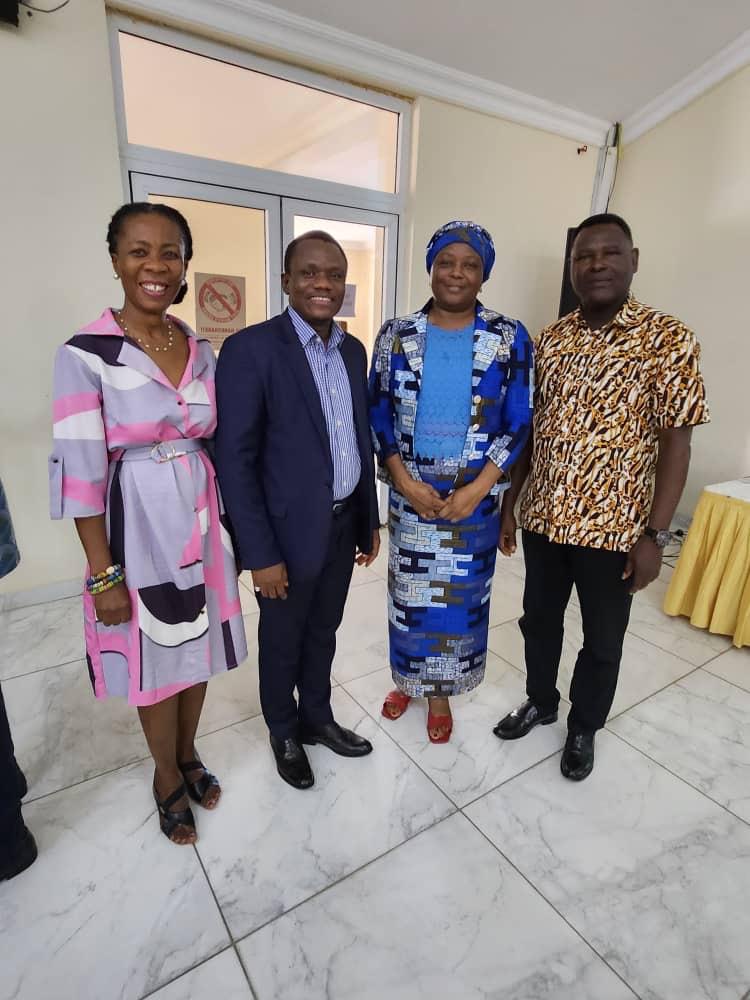
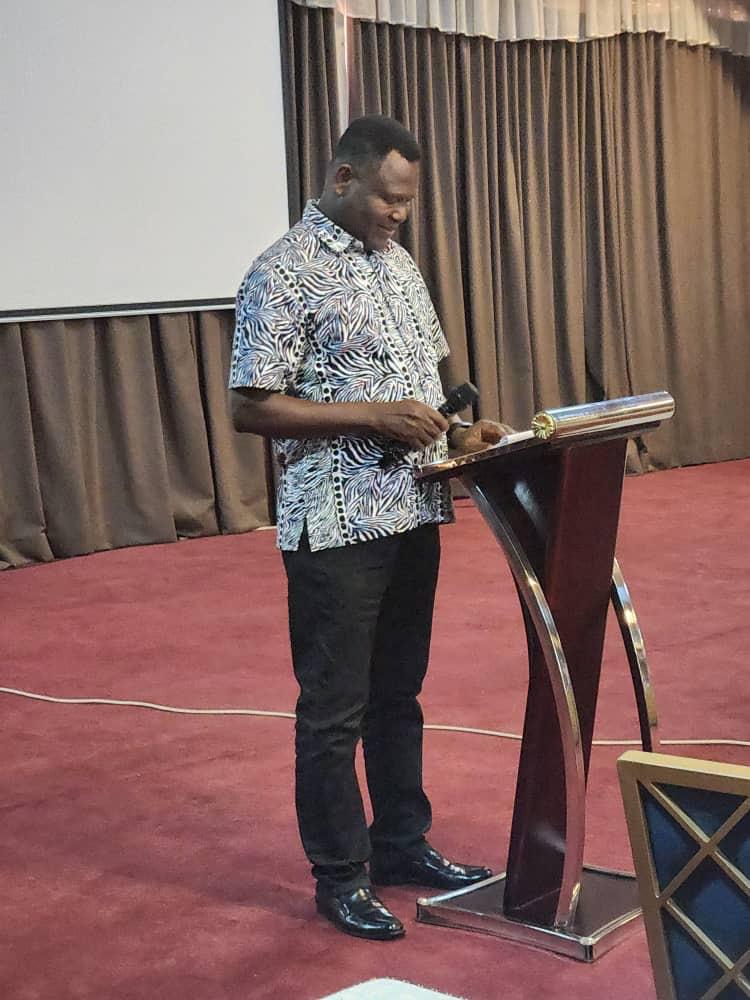
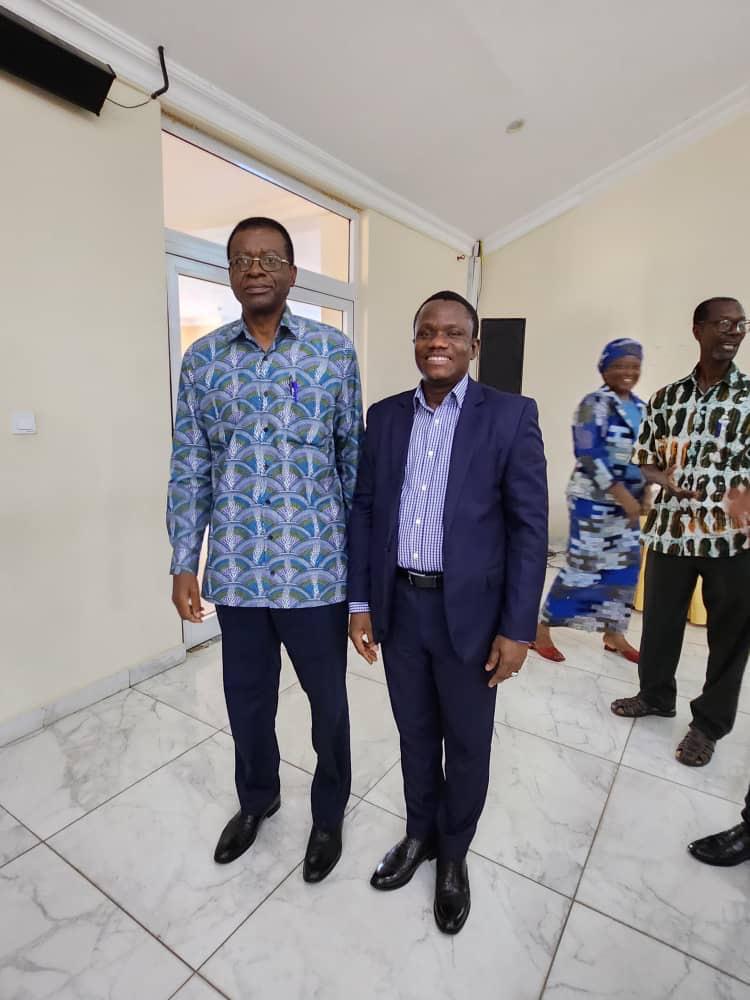
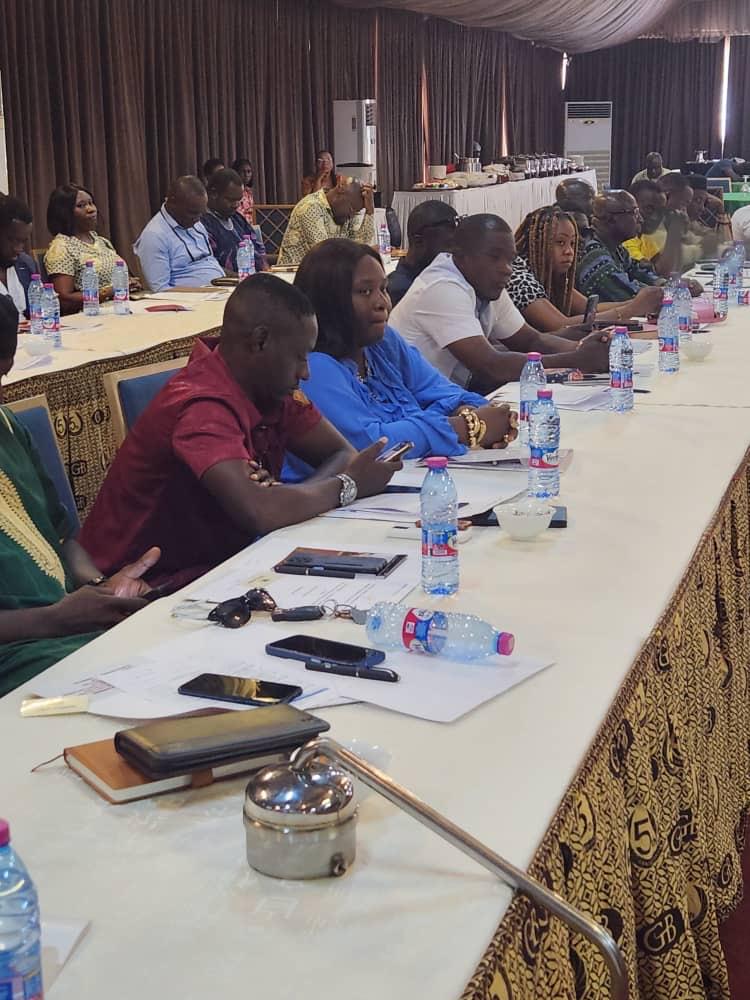
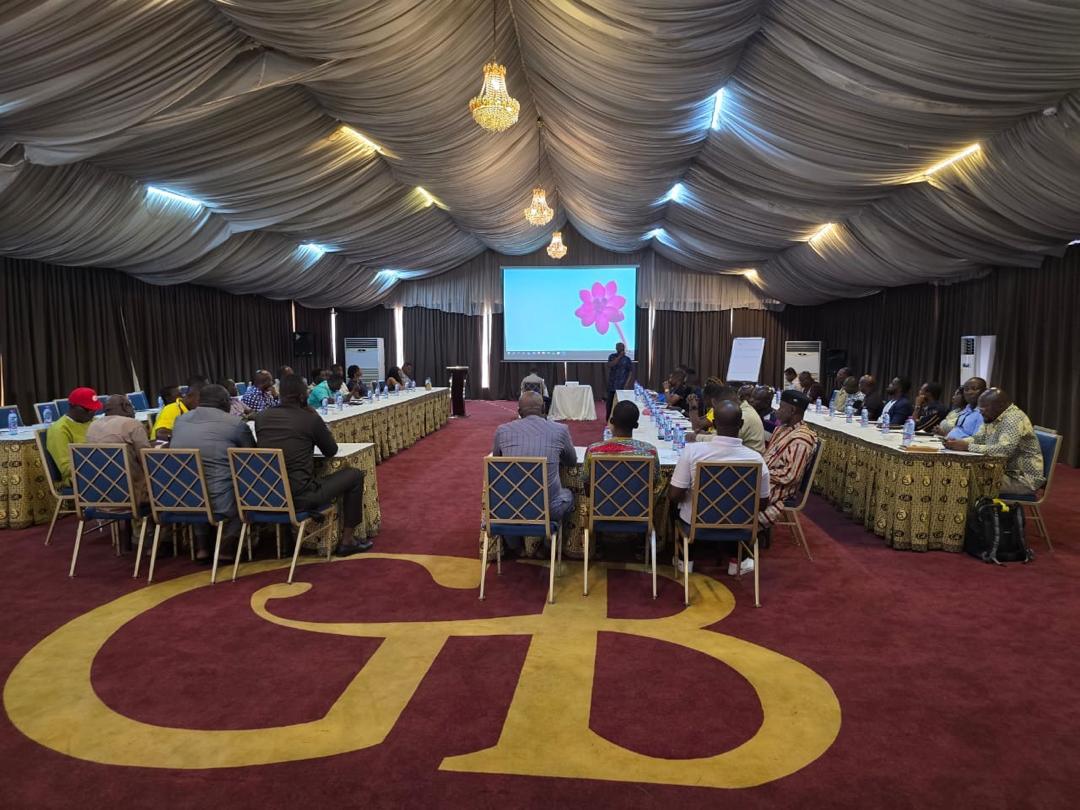
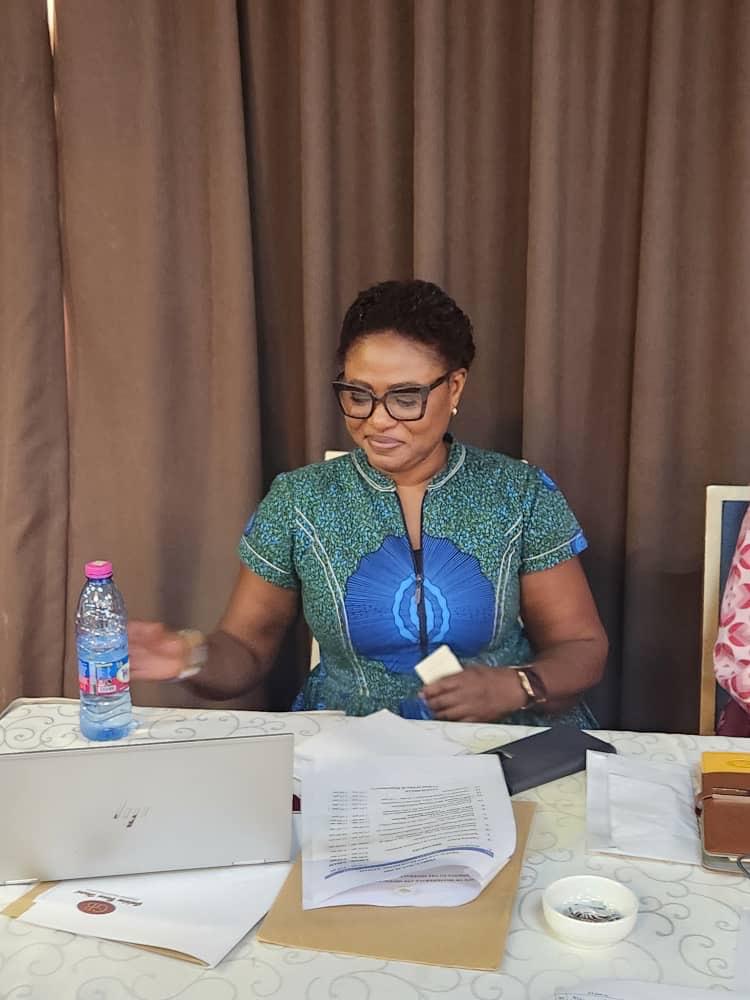
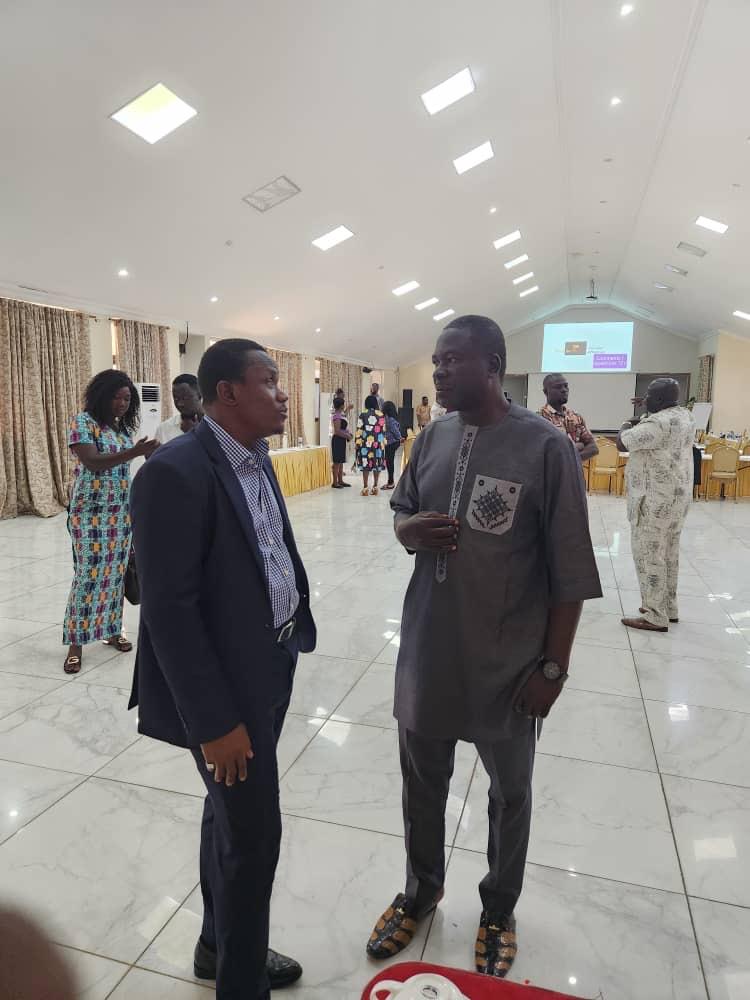
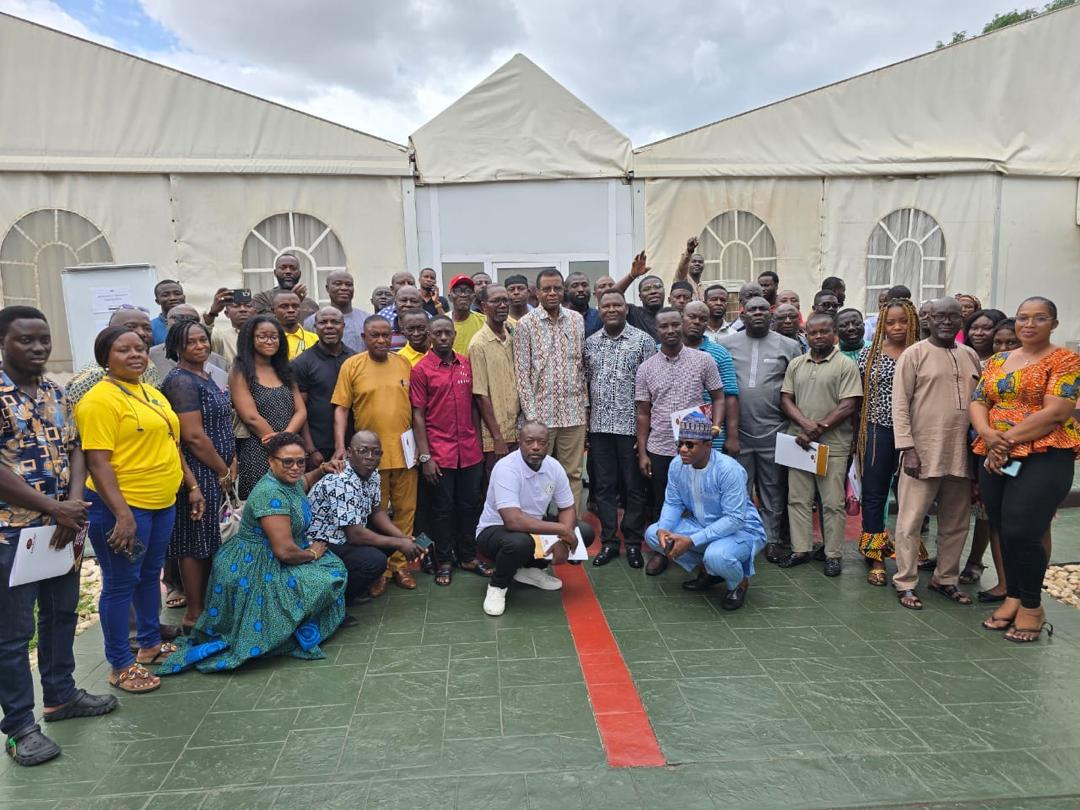
Public Consultations Commence for The Revision of the 2014 Minerals and Mining Policy and the Minerals and Mining Act, 2006 (Act 703)
Public Consultations Commence for The Revision of the 2014 Minerals and Mining Policy and the Minerals and Mining Act, 2006 (Act 703)
The current Minerals and Mining Policy was adopted in 2014. The Minerals and Mining Act of 2006 (Act 703) has also been in force for nearly twenty years. Following the 2024 elections and the election of the National Democratic Congress with a manifesto which has set out its policy on mining, emerging global trends such as the issue of climate change and transition minerals, challenges arising from the implementation of the current mining policy over the past decade, the importance of small scale mining to the economy of Ghana among others, the Ministry of Lands and Natural Resources has commenced a review of the 2014 Mining Policy and Act 703.
The Minerals Commission, which is an agency of the Ministry of Lands and Natural Resources and primarily responsible for the regulation of the mining sector is consulting with industry, experts and other stakeholders on the review of the 2014 mining policy and Act 703.
The Commission is inviting the public to submit inputs for consideration into the ongoing review of the Mining Policy and the Act.
The inputs received will play a critical role in shaping Ghana’s approach in managing the sector and ensuring a sustainable and resilient future for the nation’s mineral resource development.
The deadline for submissions is June 4, 2025. Interested parties can participate in the consultation and review process byaccessing the draft review policy and the Act and submitting their responses to info@mincom.gov.gh/ahmed.tijani@mincom.gov.gh or deliver
a hardcopy to:
The Chief Executive Officer
Minerals Commission
12 Switchback Road Residential Area, Cantonments
P. O. Box M248
Accra – Ghana
Digital Address: GL-060-113


